 Annual Report 2022-2023
Annual Report 2022-2023
Knowledge is human
President’s Message
“The human-curated, human-verified knowledge that Wikipedia provides is more important than ever”
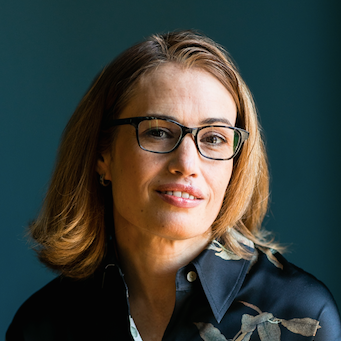
Lisa Seitz Gruwell
President of the Wikimedia Endowment
Since its founding in 2001, Wikipedia has grown into the largest collection of human knowledge in history. Wikipedia is invaluable, and we are steadfast in our commitment to ensuring its future.
Every day, thousands of volunteers around the world dedicate their time and effort to create a vast repository of freely accessible, neutral, and reliable information. They work in over 300 languages and have written over 63 million articles on Wikipedia that are read 15 billion times every month.
At the heart of sustaining Wikipedia lies the Wikimedia Endowment. Access to knowledge is a fundamental human right, and the Wikimedia Endowment’s mission is to provide enduring support for Wikipedia and related Wikimedia projects, ensuring their vitality for years to come.
Over the last few years, we have seen a rapid change in the way people are consuming knowledge on the internet and through their devices. This is accompanied by an accelerated increase in misinformation both through unverified AI-generated content and deliberate efforts to deceive by bad actors. The human-curated, human-verified knowledge that Wikipedia provides is more important than ever.
We believe that technology that is harnessed in the right way can make Wikipedia editors more efficient, help make the encyclopedia even more accurate, and deliver Wikipedia to more people in more languages. However, technology is not a replacement for the complex human judgment our editors provide when writing Wikipedia. Knowledge is human.
Throughout this Annual Report, you will discover stories of the impactful projects funded by the Endowment, the generous donors and board members who support our mission, and the talented people who work tirelessly to innovate the technology behind the Wikimedia projects.
As we celebrate another year of collaboration, impact, and progress, I want to thank all members of our community—donors, editors, readers—for your support. Together, we are helping to ensure the world has access to high quality encyclopedic knowledge for generations to come.
With gratitude,
Lisa Seitz Gruwell
President, Wikimedia Endowment
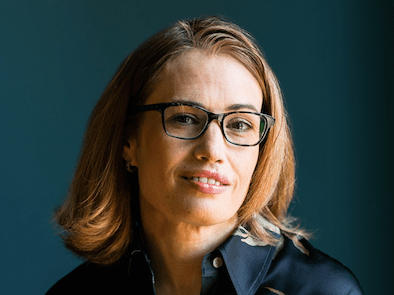
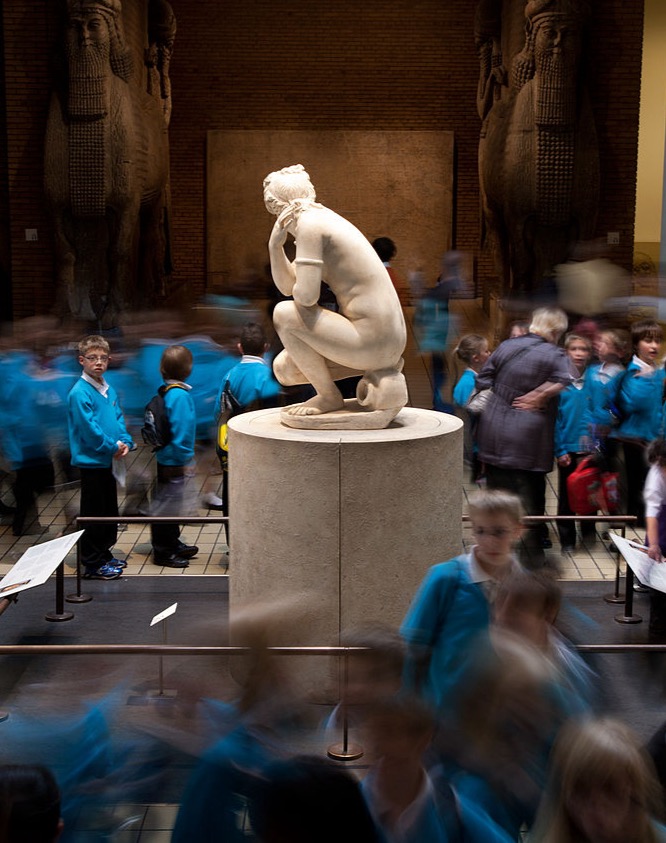
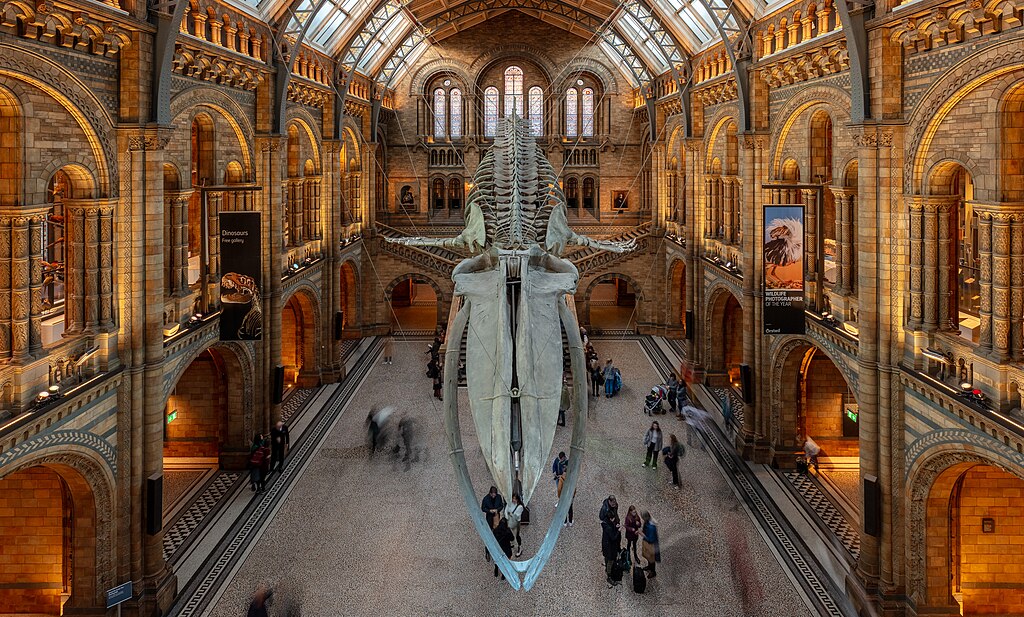

Stories
A year of progress that’s visible and indelible
The Wikimedia Endowment supported projects and people that are making a sustained and significant difference across Wikimedia’s websites — and in the lives of users around the world.
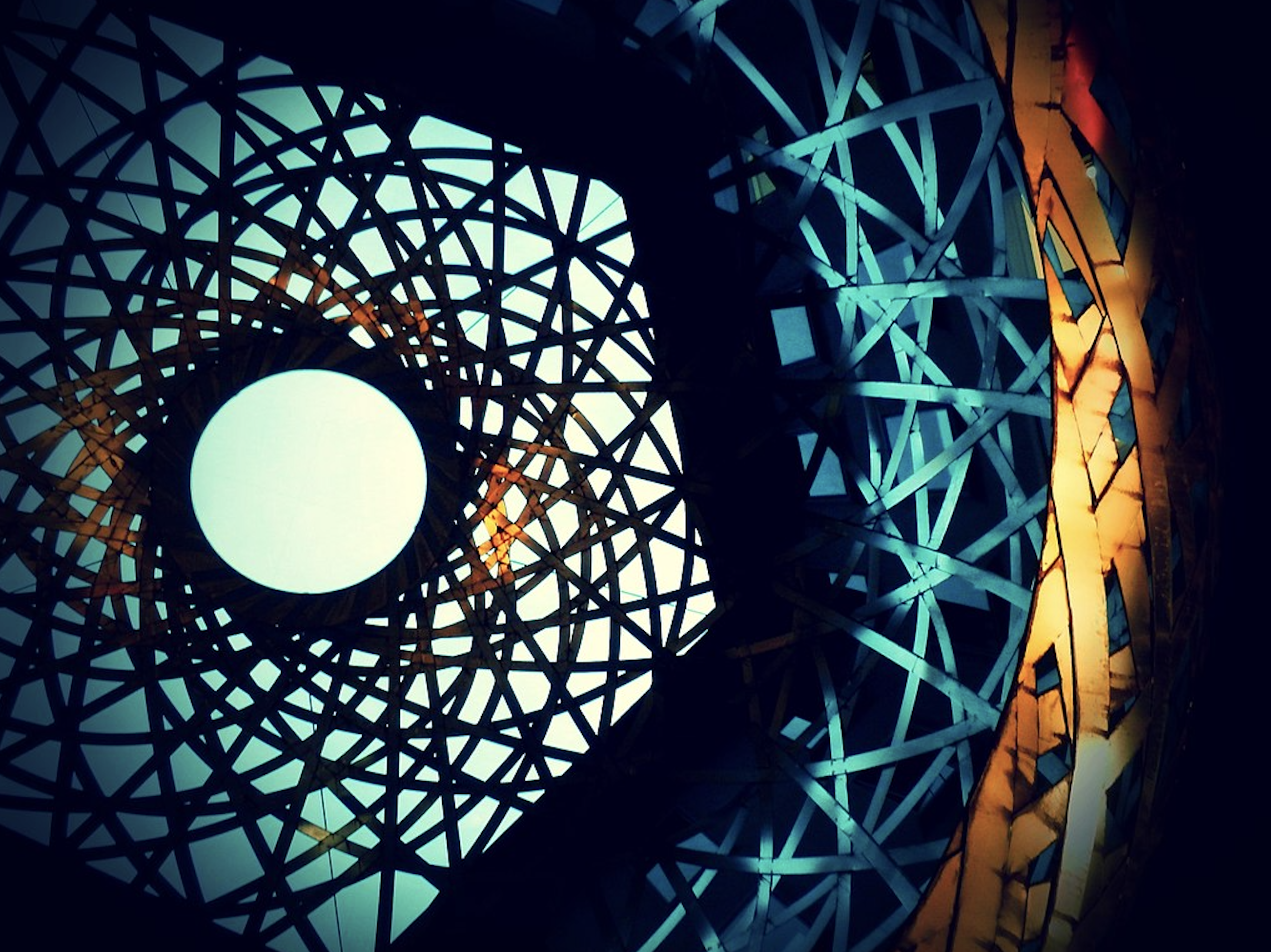
Special milestone: Funding Wikipedia’s technological future
How the world receives information is rapidly changing. It is critical that the Wikimedia Foundation continues to evolve their technology to meet the world’s changing needs and seize opportunities to bring Wikipedia to more people in more languages. In a series of interviews with Endowment donors, we consistently heard a strong desire to use the Endowment to help Wikipedia not only remain relevant, but also thrive in a world of rapid technological innovation.
Special milestone: Funding Wikipedia’s technological future

How the world receives information is rapidly changing. It is critical that the Wikimedia Foundation continues to evolve their technology to meet the world’s changing needs and seize opportunities to bring Wikipedia to more people in more languages. In a series of interviews with Endowment donors, we consistently heard a strong desire to use the Endowment to help Wikipedia not only remain relevant, but also thrive in a world of rapid technological innovation. Human curated, human verified information is more important than ever. Technology that is leveraged in the right way can make our editors more efficient and deliver Wikipedia to more people in more places. In FY 2022-23, the Wikimedia Endowment funded four projects that do just that:
- Kiwix, $250,000: Kiwix, a non-profit organization dedicated to providing offline access to Wikipedia content, plays a crucial role in making knowledge more accessible worldwide, especially in regions with limited internet connectivity. With over 10-12 million users spanning across 200 countries, Kiwix has become an indispensable tool for individuals seeking information regardless of their online access. Notably, over 80% of Kiwix users reside outside Europe and North America, highlighting the organization’s impact on bridging digital divides and ensuring equitable access to knowledge for diverse communities globally.
- Abstract Wikipedia and Wikifunctions, $1 million: Abstract Wikipedia aims to build a knowledge base independent of language, making it easier to share, add, translate, and improve knowledge across languages on Wikipedia. Wikifunctions is the underlying technical infrastructure that supports the project. Abstract Wikipedia’s technical development is led by the Wikimedia Foundation.
- Machine Learning, $950,000: Led by the Wikimedia Foundation’s Machine Learning team, this programmatic area of Wikimedia work focuses on building and strengthening AI and machine learning infrastructure on Wikipedia and Wikimedia projects. The Wikimedia Foundation believes that while all knowledge on Wikipedia must be human-verified, human editors can use AI to support and simplify their work. Machine learning tools make the work of volunteer editors more efficient, enabling them to focus time on edits that require complex human judgment. This work includes the development of algorithms to measure the quality of Wikipedia articles and machine learning models that catch incidents of vandalism on Wikimedia projects.
- Wikidata, $1 million: Wikidata is the multilingual, structured knowledge base that powers knowledge on Wikipedia. Wikidata more easily connects knowledge from Wikimedia projects with machines, including voice assistants, websites, and other platforms that leverage Wikimedia content.
Together, these projects make achieving our goals feel even closer. As Abstract Wikipedia endeavors to transcend linguistic barriers and Kiwix extends the reach of knowledge to the farthest parts of the globe, we witness how transformative it is when knowledge can be shared and created by everyone. The Machine Learning initiative scales the work of volunteer editors and improves efficiency and accuracy on Wikimedia projects. Finally, Wikidata extends the reach and relevance of Wikimedia content to other platforms, allowing more people to access free knowledge than ever before.
The selected projects align with ongoing efforts to improve and innovate Wikimedia projects through collaboration with volunteers. These initial Endowment grants support current priorities outlined in the Wikimedia Foundation’s annual plan and technical roadmap. Sustained technical development forms the backbone infrastructure of the Wikimedia projects, now and into the future, and continued development in these areas will help ensure that the projects remain stable and innovative, in line with the Endowment’s mission of supporting the Wikimedia projects in perpetuity.
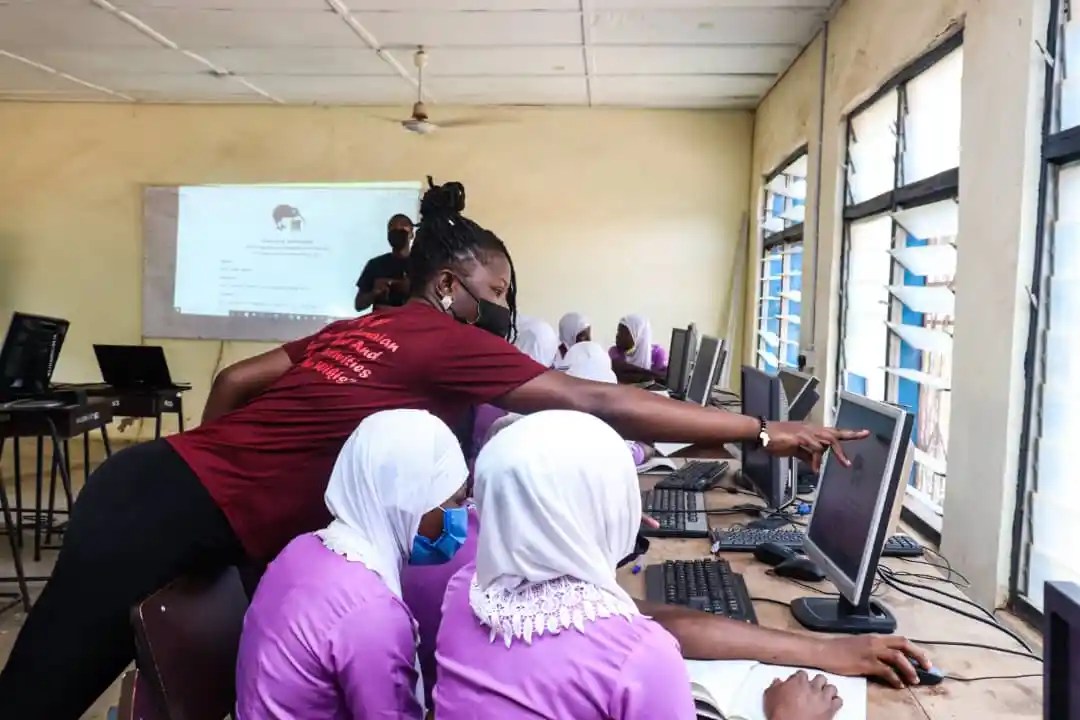
Knowledge seekers: Empowering offline access with Kiwix
While internet connectivity has become commonplace for many, billions of people around the world still face challenges accessing online resources due to cost, limited infrastructure, and censorship. Approximately 2.6 billion individuals — representing about 33% of the global population — remain offline, with significant disparities based on geographic and economic factors. There is a critical need for innovative solutions that bridge the digital divide between online and offline access to knowledge.
Knowledge seekers: Empowering offline access with Kiwix

While internet connectivity has become commonplace for many, billions of people around the world still face challenges accessing online resources due to cost, limited infrastructure, and censorship. Approximately 2.6 billion individuals — representing about 33% of the global population — remain offline, with significant disparities based on geographic and economic factors. There is a critical need for innovative solutions that bridge the digital divide between online and offline access to knowledge.
Enter Kiwix, a groundbreaking offline reader and nonprofit organization dedicated to democratizing access to educational content, particularly Wikipedia and other Wikimedia projects. Kiwix’s mission is deeply intertwined with Wikipedia’s own, aiming to make vast repositories of knowledge accessible to everyone, regardless of their internet connectivity status. The name “Kiwix” symbolizes this commitment, formed from an anagram of “Wiki”, as Wikipedia was the first piece of internet content they made accessible offline.
As a recipient of a Wikimedia Endowment grant, Kiwix is an example of how the Endowment can support initiatives that promote knowledge accessibility and sharing. Kiwix’s innovative approach revolves around creating highly compressed copies of entire websites, including Wikipedia, encapsulated in single (.zim) files. These compact files can be stored on a range of devices, from mobile phones to computers and inexpensive Hotspot devices, enabling users with limited or no internet access to explore a treasure trove of educational content.
The impact of Kiwix’s initiatives is palpable, such as in the Kiwix4Schools Project implemented by Open Foundation West Africa in Ghana, Tanzania, Nigeria, Burundi, South Sudan, and the Democratic Republic of the Congo. This project brings Kiwix to students in junior and senior high schools, providing invaluable access to educational resources in regions with unreliable internet connectivity.
Kiwix co-founder Stephane Coillet-Matillon said, “We started with rural African schools in mind, and quickly found out that we had users in refugee camps, Himalayan villages, polar bases and even prisons. The number of use cases for offline access is endless”.
Since its inception in 2007, Kiwix has gained significant traction, with over 10-12 million users worldwide in 212 territories and over 100 languages supported. Remarkably, 80% of its downloads originate from users outside Europe and North America, underscoring its relevance and effectiveness in regions with limited internet infrastructure. The availability of Kiwix on preloaded flash drives further extends its accessibility, allowing users to enjoy a browsing experience akin to a regular web browser, even without an internet connection.
Through collaborative initiatives like Kiwix, the Wikimedia Foundation and the Wikimedia Endowment continue to pave the way for a future where knowledge knows no digital boundaries.
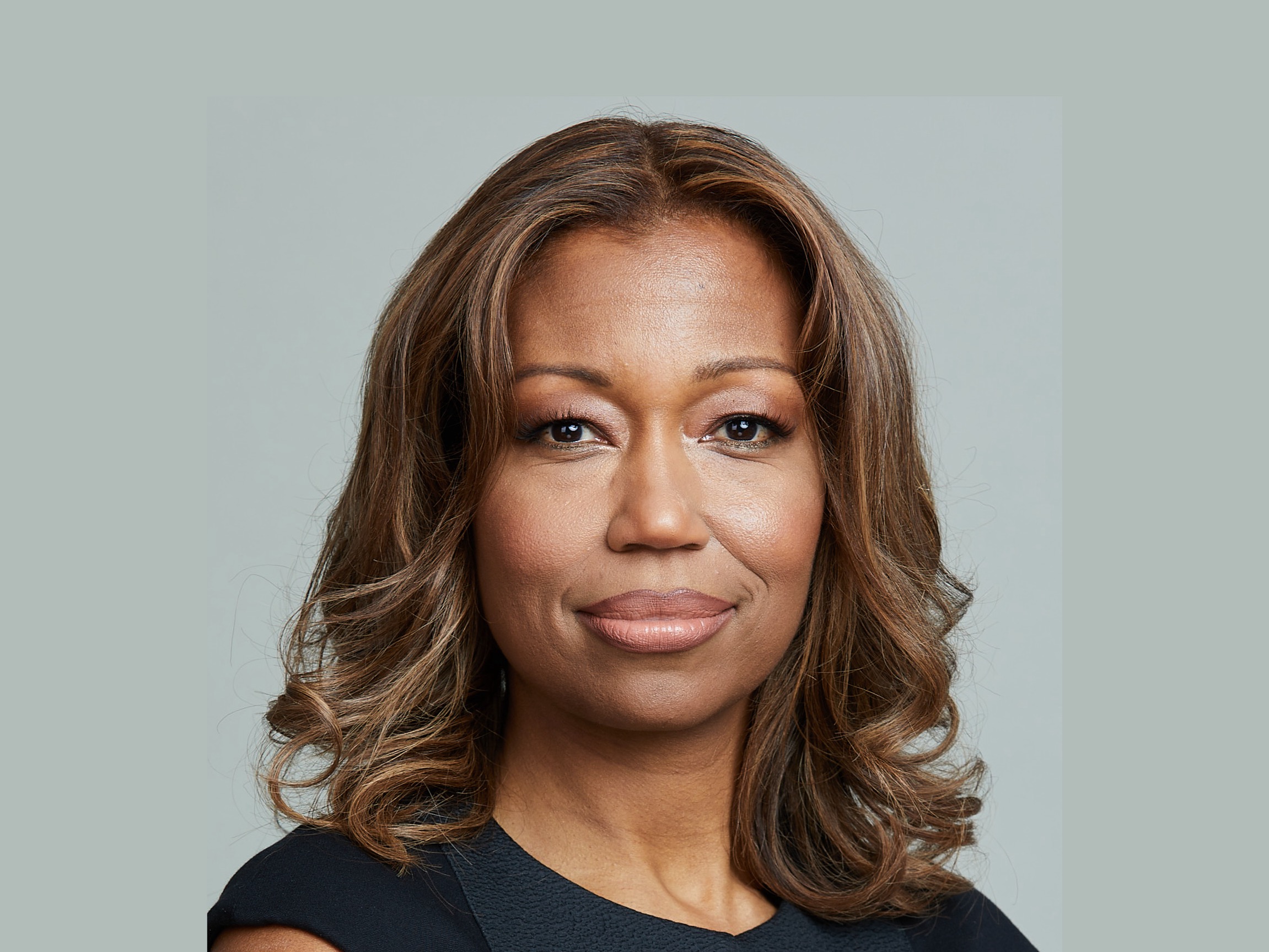
Dedicated donors: Lisa Lewin and strengthening the Wikimedia Endowment
“There used to be this old model of a professional life well-lived — which is you’d spend the first part of it learning, and then the second part of it earning, and then the third part of it serving,” says Wikimedia Endowment Board Member, Lisa Lewin. “That model has given way to one that speaks more to the realities of all the opportunities and real challenges that we face in society — which is, you can’t actually have people with talent waiting until they retire to give it.”
Dedicated donors: Lisa Lewin and strengthening the Wikimedia Endowment

“There used to be this old model of a professional life well-lived — which is you’d spend the first part of it learning, and then the second part of it earning, and then the third part of it serving,” says Wikimedia Endowment Board Member, Lisa Lewin. “That model has given way to one that speaks more to the realities of all the opportunities and real challenges that we face in society — which is, you can’t actually have people with talent waiting until they retire to give it.”
Lisa didn’t wait. The Wikimedia Endowment is fortunate to have her decades of expertise on the Board of Trustees.
Lisa’s professional journey “has been propelled and motivated by a few things — including access to knowledge and education, and leveraging technology, data, and innovation to increase that access,” Lisa says. She holds a bachelor’s degree from Washington University in St. Louis, and earned her MBA with honors from Harvard Business School in 2003. Lisa joined McGraw Hill, the publishing house that specializes in educational content and services for users from pre-K to postgraduate, where she rose to become Vice President and General Manager. She then founded an e-learning startup and educational technology consultancy, for which she was CEO, before joining Pearson plc, a British corporation specializing in education publishing. Eventually, Lisa became CEO of General Assembly, which offers boot camps and courses in data science, user experience design, and software engineering, and which has educated more than 1 million people. In April 2023, she became CEO in Residence at Primary Venture Partners, where she supports and mentors portfolio companies at their startup and scale-up phases.
Lisa says her professional and philanthropic life has “really been animated by the idea that knowledge should be free and that access to quality education should be universal. . . Wikipedia and the entire Wikimedia ecosystem around it are such vital cornerstones of that core tenet of free knowledge for everyone.”
“Wikipedia and the entire Wikimedia ecosystem around it are such vital cornerstones of that core tenet of free knowledge for everyone.”
At the Wikimedia Endowment, Lisa sits on our Governance Committee, which ensures that the Endowment’s Board fulfills its legal and fiduciary responsibilities and that it governs effectively. Each of the Endowment’s four committees plays a crucial role in steering the Endowment.
“On nonprofit boards, my interest has always been in organizational governance,” Lisa says. “I am a career corporate executive. And one of the big issues that you wrestle with leading any organization is its governance. How is authority distributed? How are decisions made? How does policy get created? And that’s particularly important in nonprofit environments where you have even more stakeholders who deserve a voice. . . That notion of inclusive decision-making and integrative decision-making is such a core value for me, and also something that I’m a bit of a student of at the organizational and system level.”
Lisa’s philanthropy and time commitment to the Wikimedia Endowment underscore her dedication to fostering knowledge accessibility and education, highlighting the crucial role of individual support in sustaining nonprofit projects. By volunteering on the Wikimedia Endowment Board, and in her other volunteer Board positions, Lisa is a role model for a more modern approach to creating social impact.
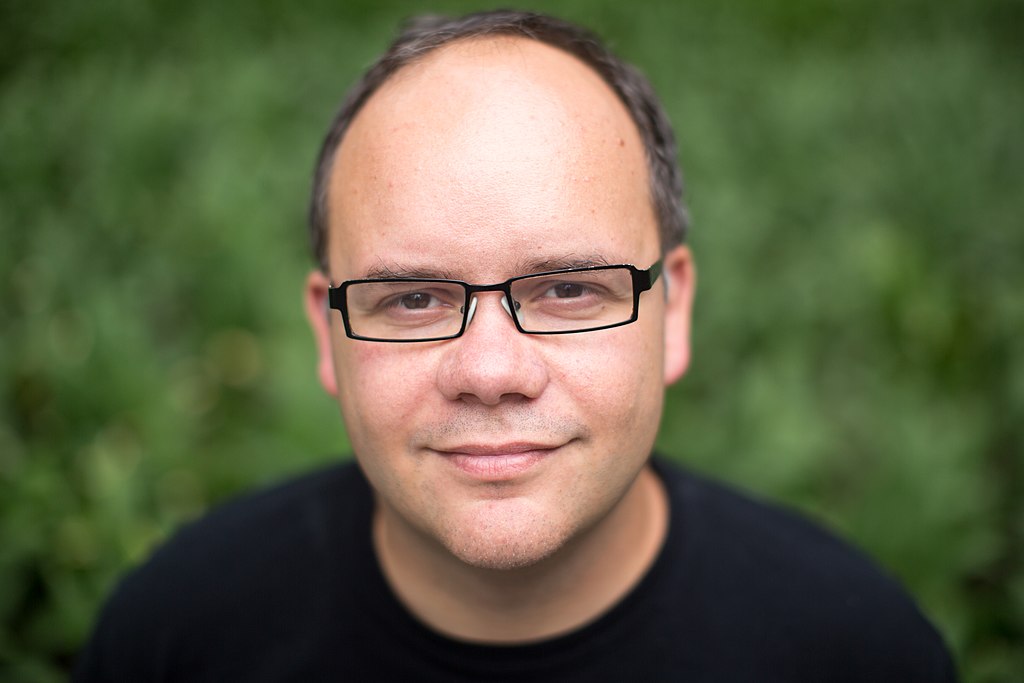
Innovative projects: Making Wikipedia more expansive in languages around the world
In January 2001, Wikipedia made its debut with articles in English. However, everyone from founder Jimmy Wales to the initial volunteer editors aimed for it to rapidly become a multilingual repository of knowledge. Fast forward two decades, and Wikipedia now exists in 323 languages.
Innovative projects: Making Wikipedia more expansive in languages around the world

In January 2001, Wikipedia made its debut with articles in English. However, everyone from founder Jimmy Wales to the initial volunteer editors aimed for it to rapidly become a multilingual repository of knowledge. Fast forward two decades, and Wikipedia now exists in 323 languages. While the English version boasts 6.8 million articles and 17 other languages have surpassed the 1 million mark, the original vision for Wikipedia remains incomplete. Over 200 Wikipedias still have fewer than 50,000 articles each, despite being in languages spoken by over 1.5 billion people.
Denny Vrandečić is leading an effort to change that reality. A prominent computer scientist who co-created the fastest-growing Wikimedia project called Wikidata, Denny is now shepherding Abstract Wikipedia, which is designed to accelerate language equality across Wikipedia by evolving Wikipedias with small article bases into full-fledged knowledge sources that benefit hundreds of millions of people. Abstract Wikipedia began in 2020, and in the 2022-2023 fiscal year, Denny and his team finished a crucial part of the project: Wikifunctions is a centralized repository of code and other functions that will let contributors produce usable content across Wikipedia’s language editions.
“A new community is growing around the project, and new possibilities are being opened,” Denny says. “I am excited that we have already seen contributors from more than 50 countries contributing to Wikifunctions, just in the first few months.”
A recent meeting with a speaker of Igbo, which millions of people speak in West and Central Africa, demonstrates the project’s progress. “I was presenting Wikifunctions to one of the leaders of the Igbo community,” says Denny. “Just in the days before we met, someone had created a function on Wikifunctions that takes the base form of a verb (in Igbo), and turns it into the imperative form — the form used for ordering someone to do something. I asked (the Igbo community leader) to give me an example, she did, and Wikifunctions created the correct answer. Her eyes lit up! Never before did she see any function dealing with words in the Igbo language.”
As Denny points out, “For speakers of high-resource languages like English, it is easy to forget how lacking the situation for many other language communities can be. But in this moment, when I saw her eyes light up, I saw a world where now everyone can contribute to the creation of a comprehensive library of functions, including for their own languages, for the topics they care about. It’s an easy way to let everyone around the globe benefit from these functions. This was a personal highlight, showing me that we were on the right path.”
As it progresses, Abstract Wikipedia aims to do what Wikipedia intended in 2001: Give every language Wikipedia a bona fide chance to become a comprehensive and current source of knowledge. Abstract Wikipedia is designed to make Wikipedia a truly multilingual knowledge source — not just in theory, but in practice. The project’s ultimate result will be a Wikipedia that lets people everywhere — in their preferred language — find the knowledge they need on the internet, and also contribute to that knowledge. That’s the Wikipedia that Jimmy Wales envisioned from the start: A Wikipedia where the language that people speak has the knowledge that they seek.
Denny’s visionary leadership, coupled with collaborative efforts through initiatives like Wikifunctions, exemplify the Wikimedia Endowment’s commitment to a world of freely shared knowledge, now and in perpetuity.
“I am driven by the vision of the Wikipedia movement: ‘Imagine a world in which every single human being can freely share in the sum of all knowledge.‘ I am taking this vision seriously and asking myself, given my knowledge and my skills, how can I contribute to this vision?”
“With Wikifunctions and Abstract Wikipedia, we aim to revolutionize the way that knowledge is being expressed, curated, and maintained — to make knowledge accessible to many more people, and to allow many more people to contribute to the knowledge commons of the world,” Denny says. “I am driven by the vision of the Wikipedia movement: ‘Imagine a world in which every single human being can freely share in the sum of all knowledge.’ I am taking this vision seriously and asking myself, given my knowledge and my skills, how can I contribute to this vision?”
WIKIMEDIA COMMUNITY
A global tapestry of stories
Explore a dynamic map highlighting the experiences and contributions of Wikimedians worldwide.
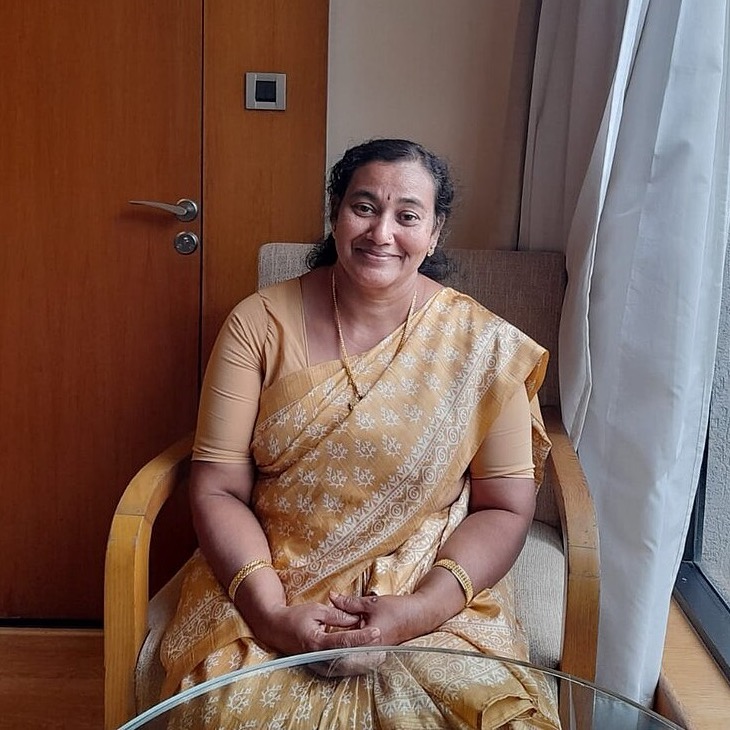
Malayalam Wikipedia Administrator
Pharmacist Meenakshi’s Wikipedia journey
Trivandrum, India
Meenakshi, a pharmacist from Trivandrum, Kerala, India, is a prolific editor and administrator on Malayalam Wikipedia. Alongside managing a pharmaceutical shop, Meenakshi remains committed to enriching the digital landscape of knowledge. Since 2017, she’s been dedicated to bridging knowledge gaps.
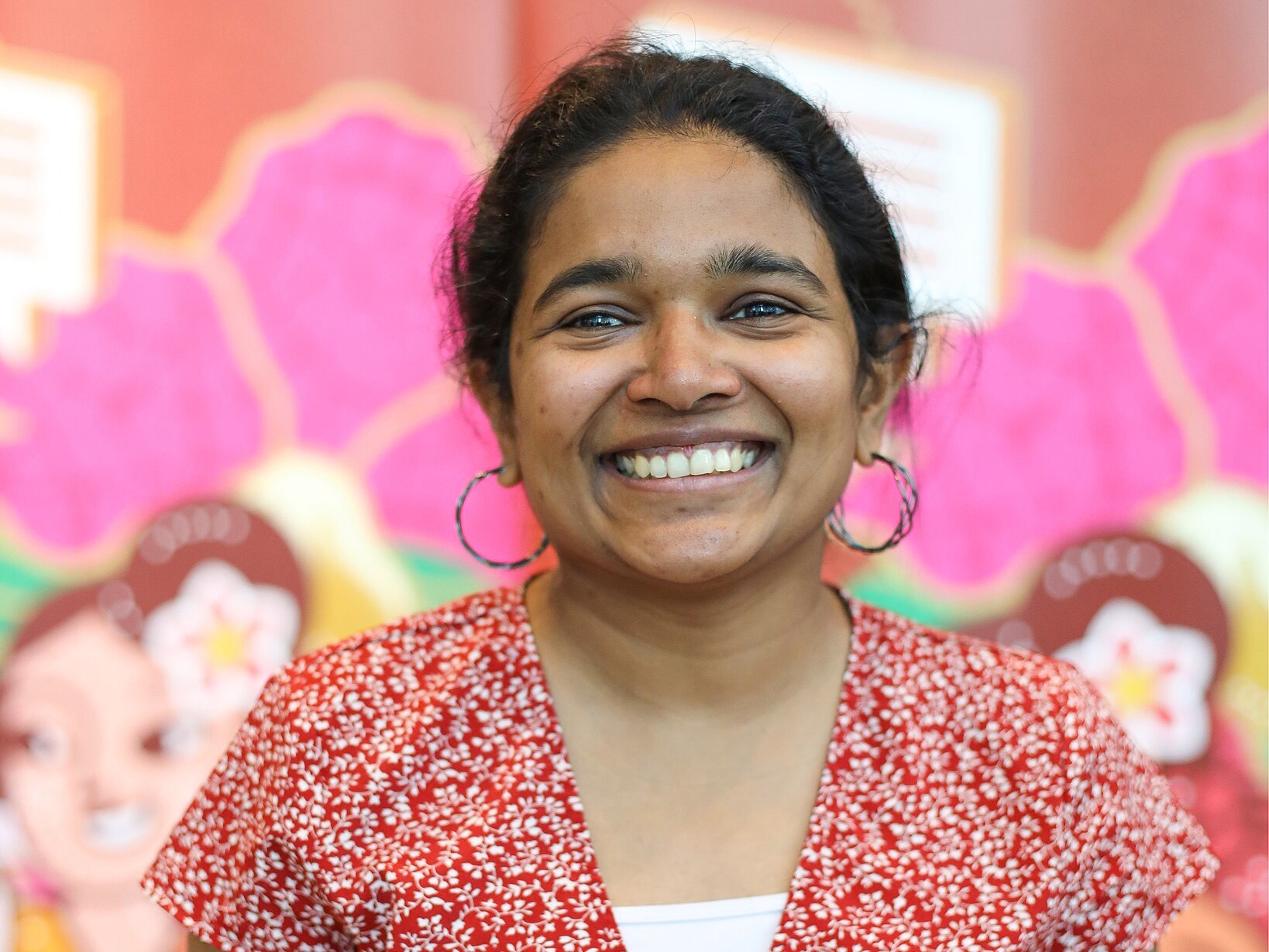
Wikimedian of the Year 2021
On a mission to stop misinformation in Wikipedia
Gothenburg, Sweden
Netha Hussain is a doctor and Wikipedia editor, known for her efforts to tackle the spread of misinformation in Wikipedia about the origin of the COVID-19. She also is dedicated to writing articles on women’s health and, as a member of the WikiWomen’s User Group, improving gender diversity in the Wikimedia movement.
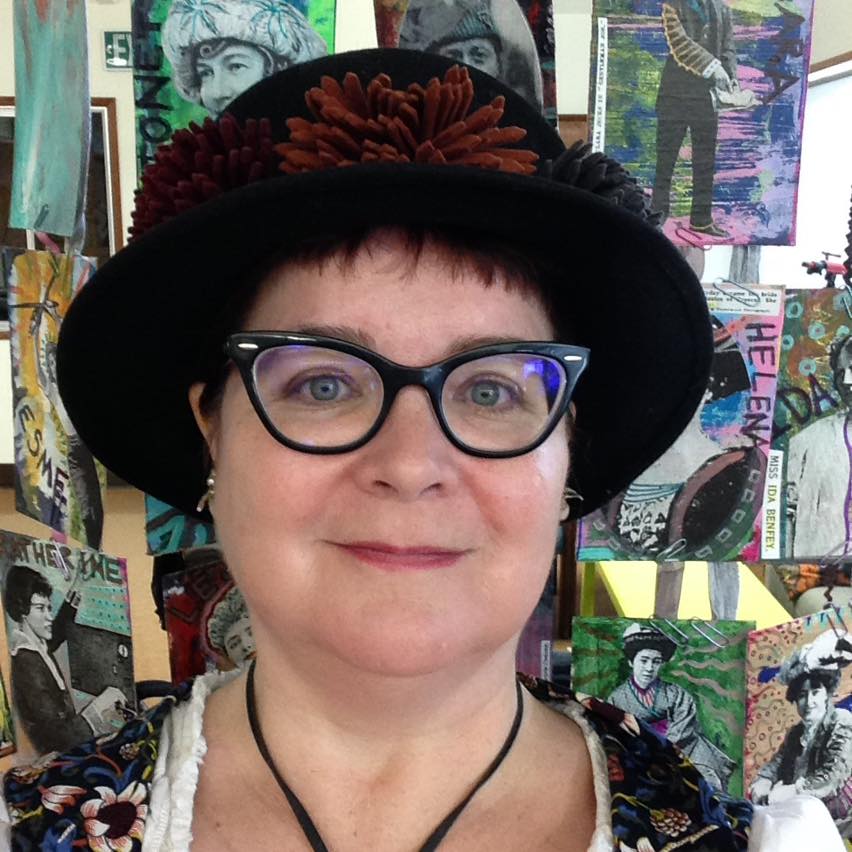
WikiWomen in Red Contributor
Weaving the web of Wikimedia
Los Angeles, United States of America
Penny Richards is a Research Assistant Professor at the University of Buffalo’s Center for Disability Studies. She contributes to the WikiProject Women in Red and enjoys connecting with people globally and delving into historical materials. Penny focuses on biographies and also contributes to WikiQuote, amplifying diverse voices with accurate sourcing.
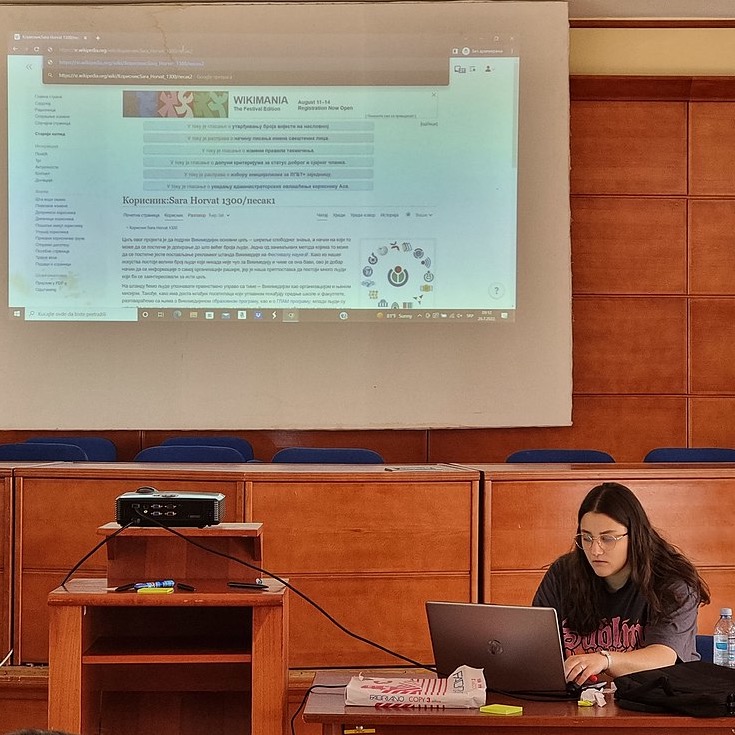
Central Eastern European Wikimedia Community
“What does the widespread access to knowledge give us?”
Serbia
Sara Horvat might be a newcomer, but this student is already proving the importance of education work in Wikimedia. She is a Wikimedian from the Central Eastern European Community, and has collaborated with the Serbian Academy of Sciences and Arts to write articles about lesser-known Serbian scientists.
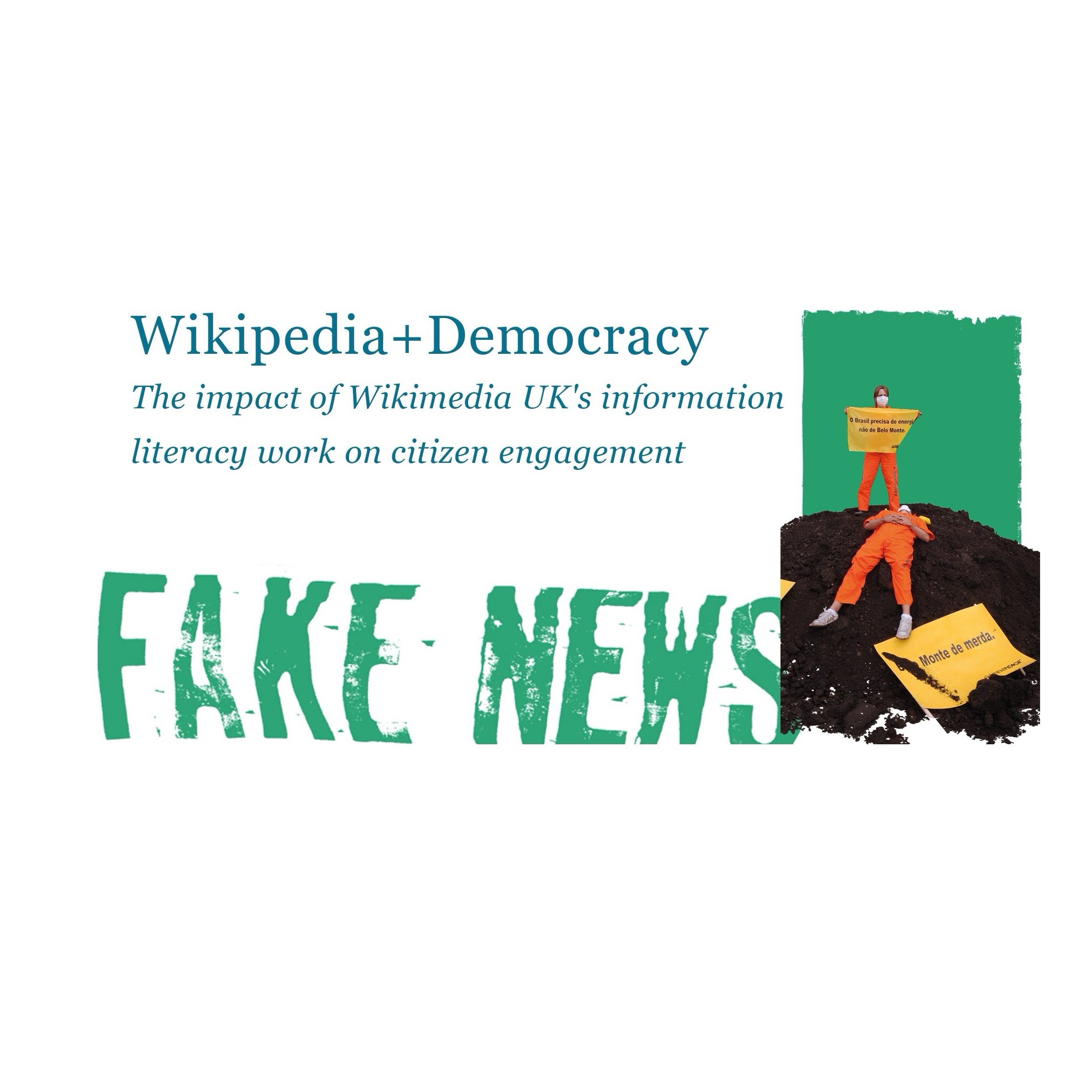
From article edits to civic power
The impact of Wikimedia UK’s information literacy work
United Kingdom
New digital technologies have altered the creation and consumption of media content, and introduced new challenges to democratic participation. Within this context, Wikimedia UK built a project to investigate how engaging with Wikimedia projects contributes to the strengthening of civil society and democratic processes in the UK.
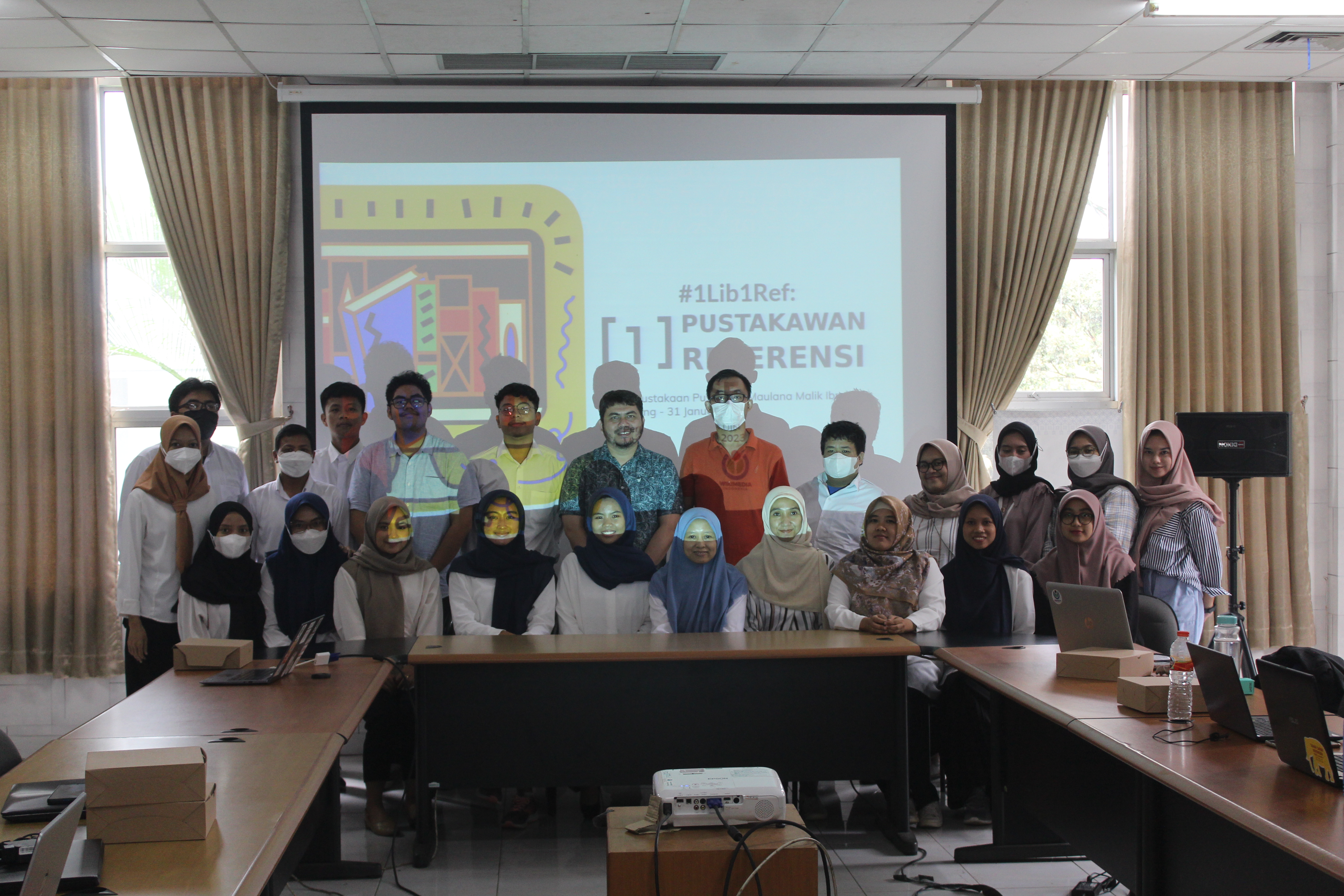
#1Lib1Ref Campaign
From local libraries, to global impact
Worldwide
The #1Lib1Ref campaign invites open knowledge enthusiasts, Wikimedians, book lovers, and library workers worldwide to come together and collaborate on verifying, increasing, and diversifying references on Wikipedia. This collective effort aims to enhance information accuracy, promote diversity in sources, and contribute to a more robust knowledge ecosystem online.
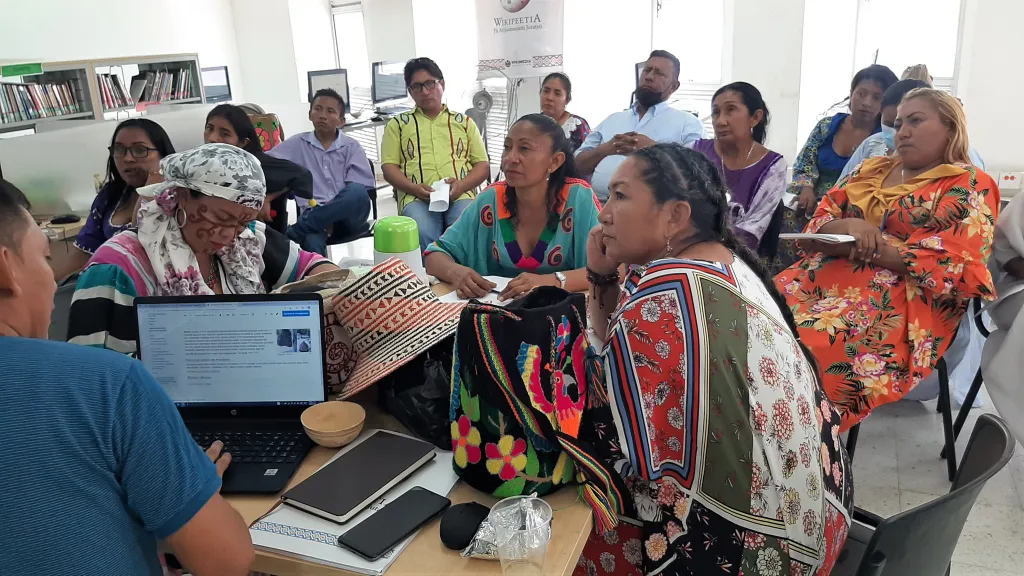
Reaffirming identity through Wikipeetia
The Wayúu Wikimedians are on a mission to preserve their culture
Venezuela and Colombia
The Wayúu people, residing in the north-western region of Venezuela and north-eastern Colombia within La Guajira, use Wikipeetia and Wikipütchimaajatü süka wayuunaiki in their native languages, to enrich information about their culture.
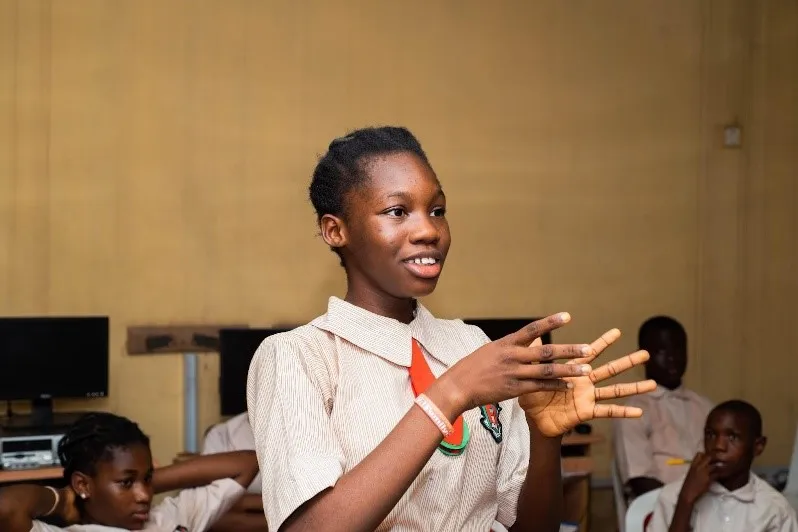
Reading Wikipedia in the Classroom
Improving media and information literacy skills of secondary school students in Nigeria
Nigeria
Improving the media and information literacy skills of secondary school students in Nigeria has made a big difference. Students grew more enthusiastic about contributing when they realized they could make a difference and leave their mark. They learned how to think critically by checking sources and editing history.
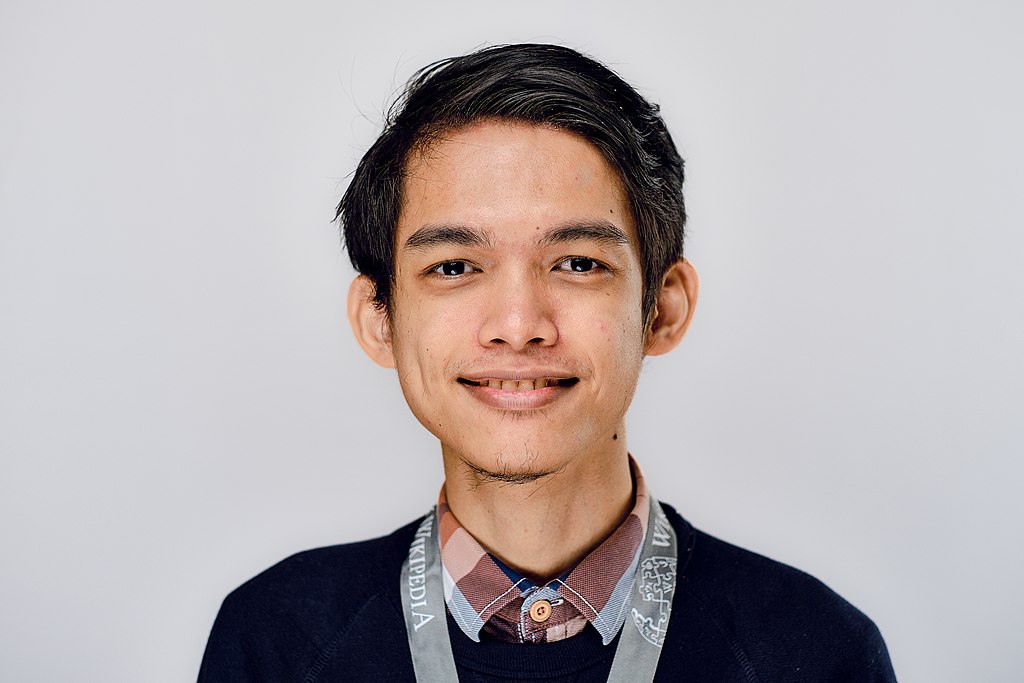
Wikimedian of the Year 2023
Bridging digital divides and inspiring others
Malaysia
At just 8 years old, Taufik Rosman found his love for sharing knowledge by editing a Wikipedia article about his school. Later, as a rural student librarian, he discovered Malay Wiktionary, sparking his transformative Wikimedia journey. His mission? To enhance Malay and Indigenous Malaysian languages and knowledge.
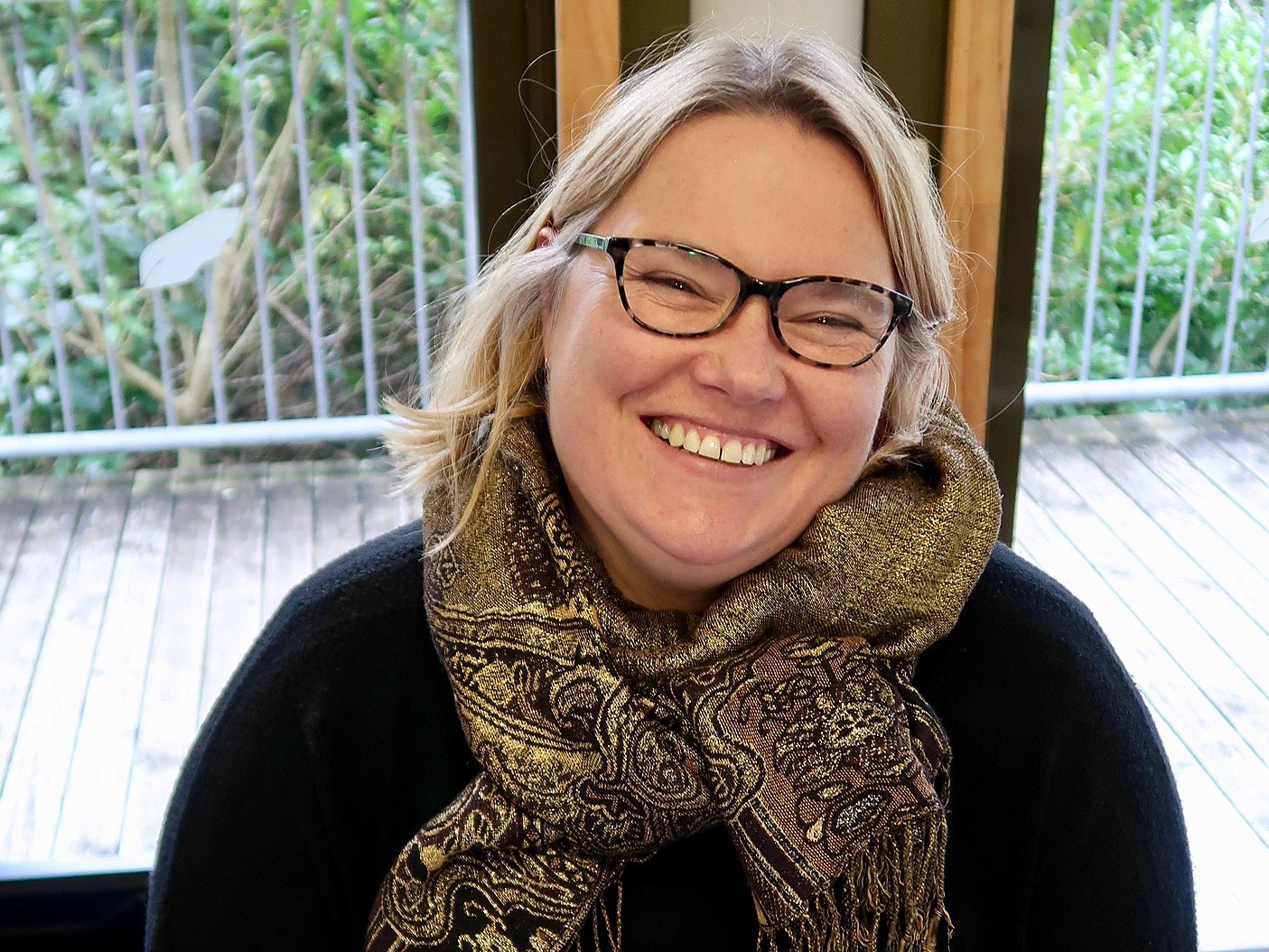
Wikimedia Laureate 2023
Amplifying women’s work in biodiversity and natural history
New Zealand
Siobhan Leachman dedicates herself to amplifying the voices of women, particularly in biodiversity and natural history. Her work across Wikipedia, Wikidata, and Wikimedia Commons has significantly enriched coverage of notable women in these fields and enhanced the representation of New Zealand biodiversity.
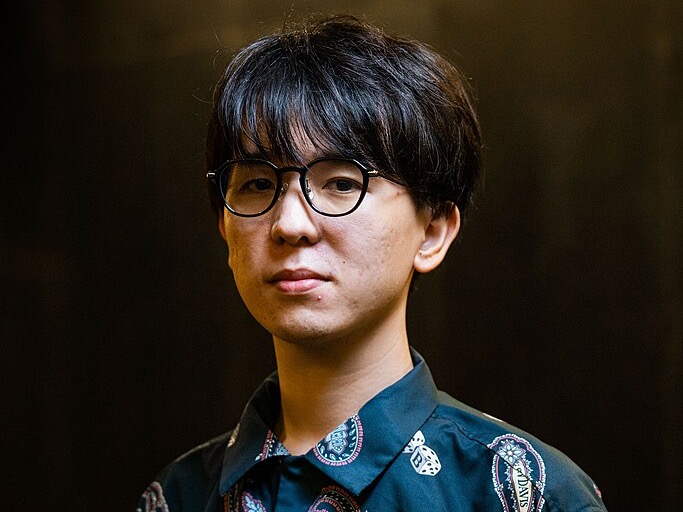
Newcomer of the Year
Amplifying the Wikimedian community from Japan
Japan
User:Eugene_Ormandy was named the 2023 Newcomer of the Year for capturing stories of inspiration and preserving community contributions. Inspired by a 2018 lecture, Eugene used his passion for editing Wikipedia to establish the Student Wikipedian Community at Waseda University Tokyo and a Wikipedian club in Japan.
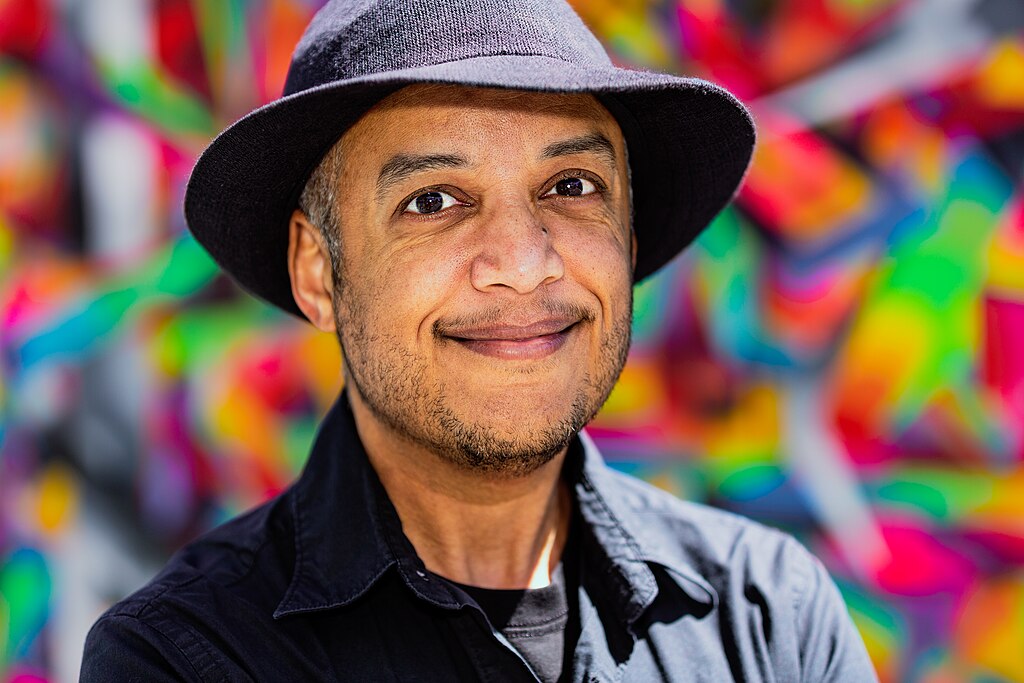
Media Contributor of the Year
A champion for inclusivity on Wikimedia projects
San Francisco, United States of America
Pax Ahimsa Gethen was named the 2023 Media Contributor of the Year for their unwavering dedication to promoting inclusivity and representation on Wikimedia platforms. Their advocacy work focuses on marginalized communities, particularly the LGBTIQ+ community.
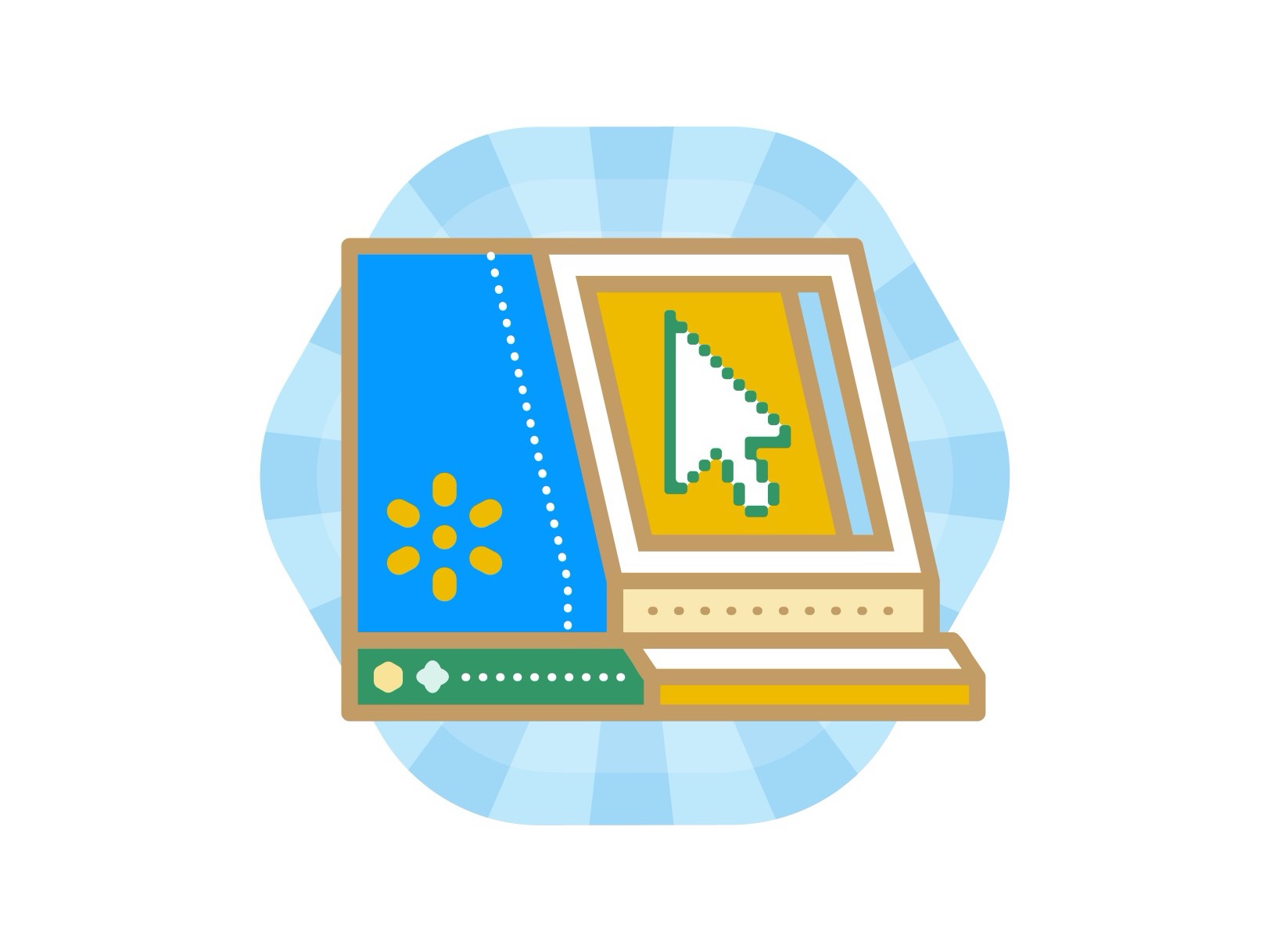
Tech Contributor of the Year
Enhancing Wikimedia’s technical backbone
Global
User:Zabe was named the 2023 Tech Contributor of the Year for his invaluable contributions to Wikimedia’s technical infrastructure. Renowned for his expertise in deployments, bug fixes, and maintaining critical codes like Checkuser and CentralAuth, Zabe’s technical prowess has significantly improved the operation and user experience of Wikimedia projects.
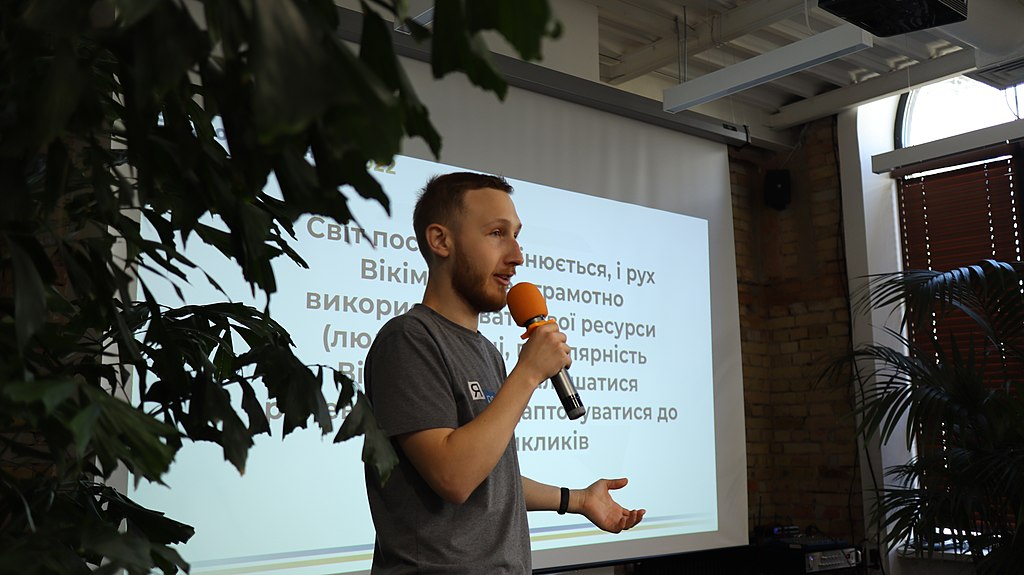
Honorable Mention, Wikimedian of the Year
Nurturing open knowledge and community resilience
Ukraine
Anton Protsiuk, Programs Coordinator at Wikimedia Ukraine, received an Honorable Mention for his outstanding contributions. Beginning as a volunteer editor on Ukrainian Wikipedia in 2011, Anton has since made significant strides, including the creation of over 300 articles and critical maintenance work.
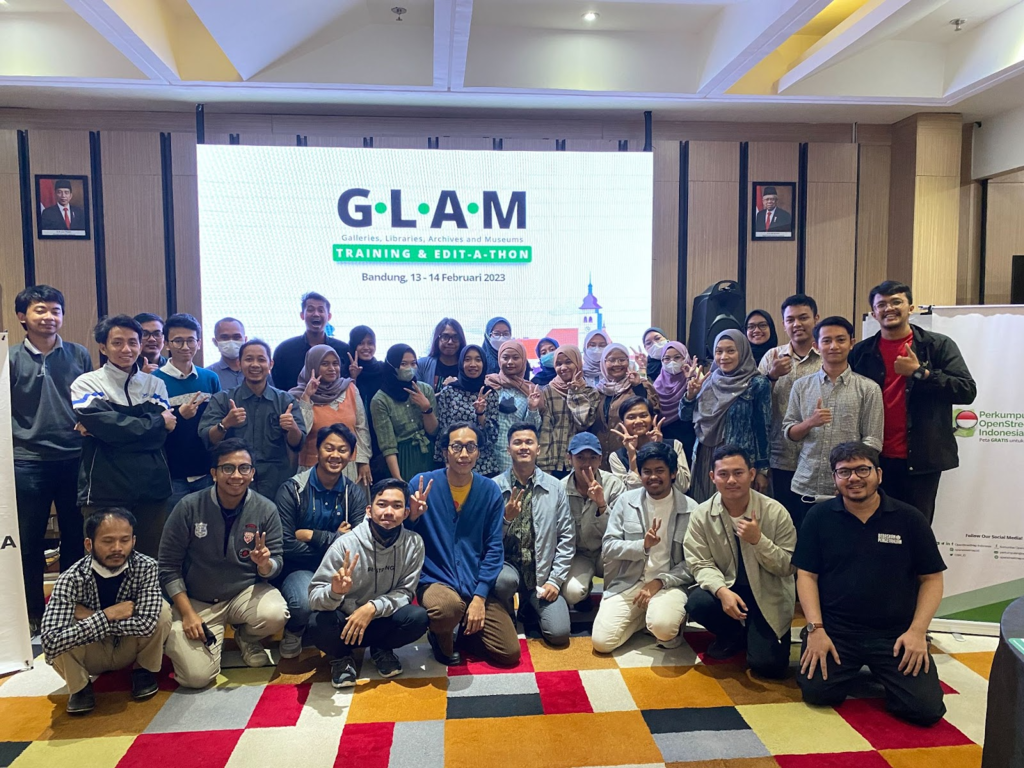
GLAM Training & Editathon in Bandung
Building capacity and preserving cultural heritage
Indonesia
OpenStreetMap Indonesia and Wikimedia Indonesia joined forces in 2022 to raise awareness about GLAM objects in Indonesia, particularly among youth. Their collaboration included a University Roadshow and a Flash Mapping Competition.

Innovating Knowledge Platforms
A journey in structured data and web collaboration
Germany
Denny Vrandečić has played a pivotal role in advancing knowledge bases, data mining, and web-based collaboration. As a project manager for Wikidata at Wikimedia Germany, he co-developed Semantic MediaWiki and laid the groundwork for Wikidata’s inception. He then worked on Google’s Knowledge Graph and as Google’s Wikimedian in Residence.
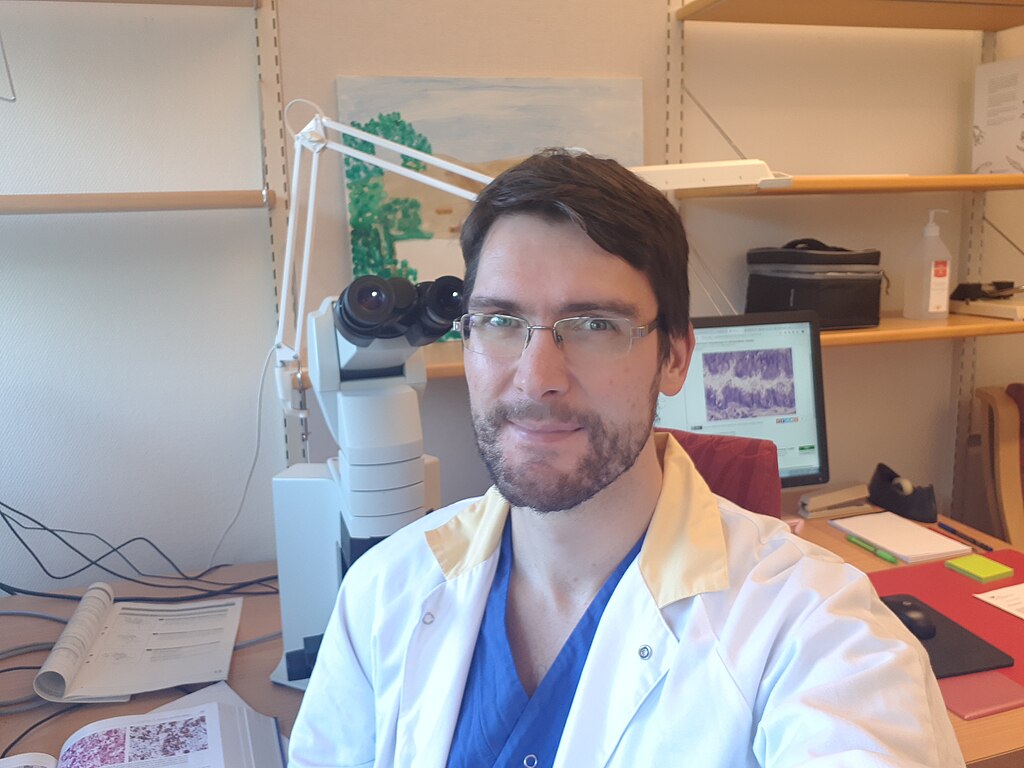
Open Access and Collaborative Learning
Pioneering medical knowledge and Wikimedia advocacy
Connecticut, United States of America
Mikael Häggström, a radiology specialist, has made contributions to both the medical field and Wikimedia projects by sharing medical knowledge and imagery. He is the creator and current editor-in-chief of WikiJournal of Medicine, transforming academic publishing by integrating it with Wikipedia’s open-access model.
Editing the WikiJournal of Medicine
Advancing medical knowledge and collaboration across continents
Ireland
Dr. Gwinyai Masukume is a Medical Doctor and Public Health researcher specializing in Epidemiology and Biostatistics, with a primary focus on women’s health and the effects of Cesarean section deliveries. As the Deputy Editor-in-Chief of the WikiJournal of Medicine from 2015 to 2022, he played a pivotal role in leveraging Wikipedia as a platform for open-access publishing.
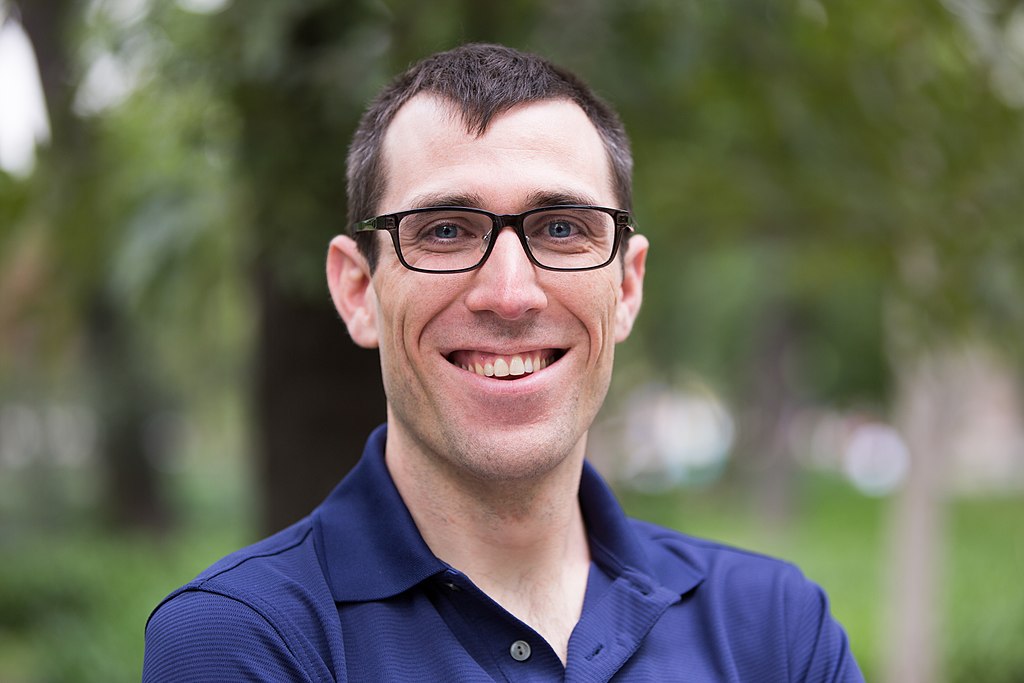
Advancing Medical Knowledge
Dr. James Heilman’s Wikimedia journey
Vancouver, Canada
Dr. Heilman, an emergency physician, has been instrumental in encouraging clinicians to contribute to Wikipedia. Besides his active involvement in WikiProject Medicine and volunteer administration on Wikipedia, he served as the president of Wikimedia Canada and founded the Wiki Project Med Foundation.
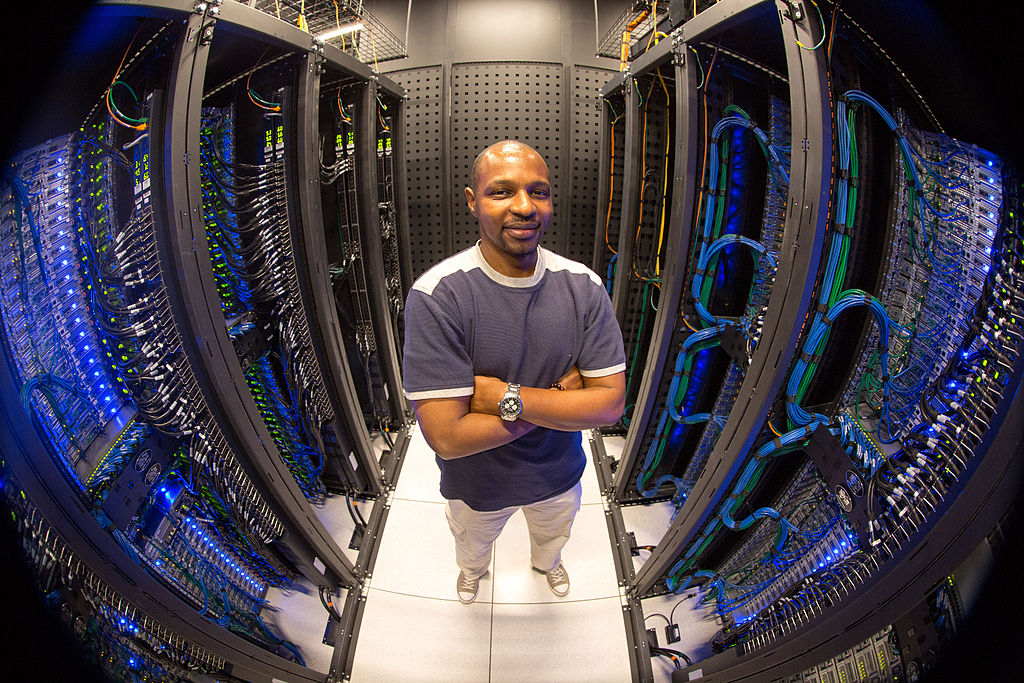
Wikimedia’s Global Connectivity
Driving seamless accessibility with Papaul Tshibamba
Texas, United States of America
As a Senior Data Center Engineer with the Wikimedia Foundation, Papaul helps ensure the uninterrupted accessibility of Wikipedia and its sister projects across the globe. His role involves overseeing the functioning of over 2,000 active servers spread across two data centers and four caching sites.
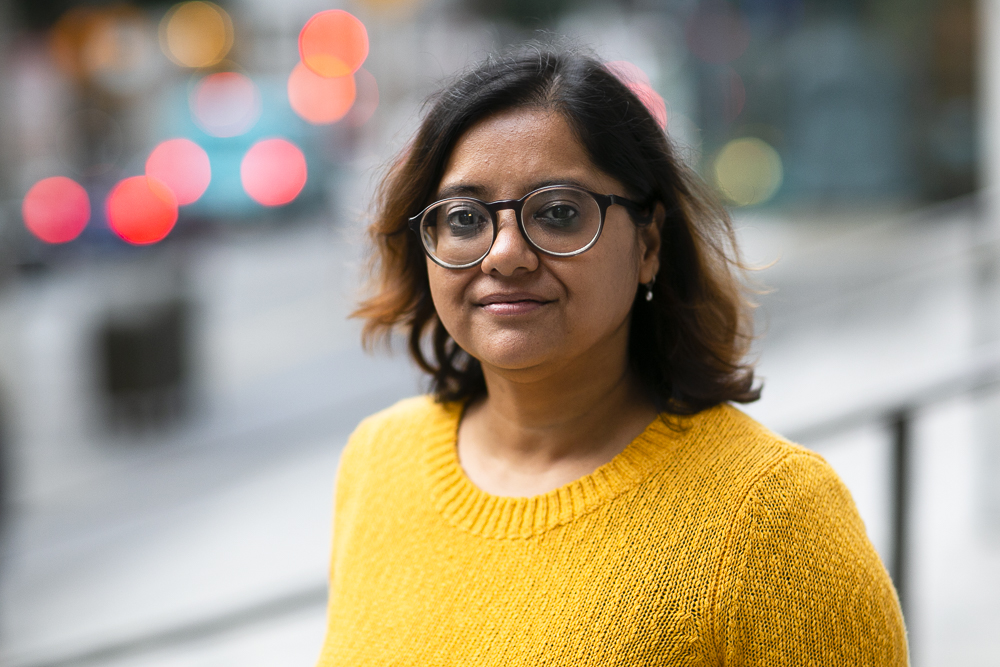
Leading Multilingual Innovation
Ensuring Wikimedia content is truly global
Kolkata, India
As a Senior Director of Product for Languages and Content Growth at the Wikimedia Foundation, Runa Bhattacharjee plays a pivotal role in shaping the multilingual landscape of Wikimedia projects. Focused on language diversity and technical innovation, Runa collaborates with teams and contributors to ensure that Wikimedia’s content remains accessible and impactful for users.
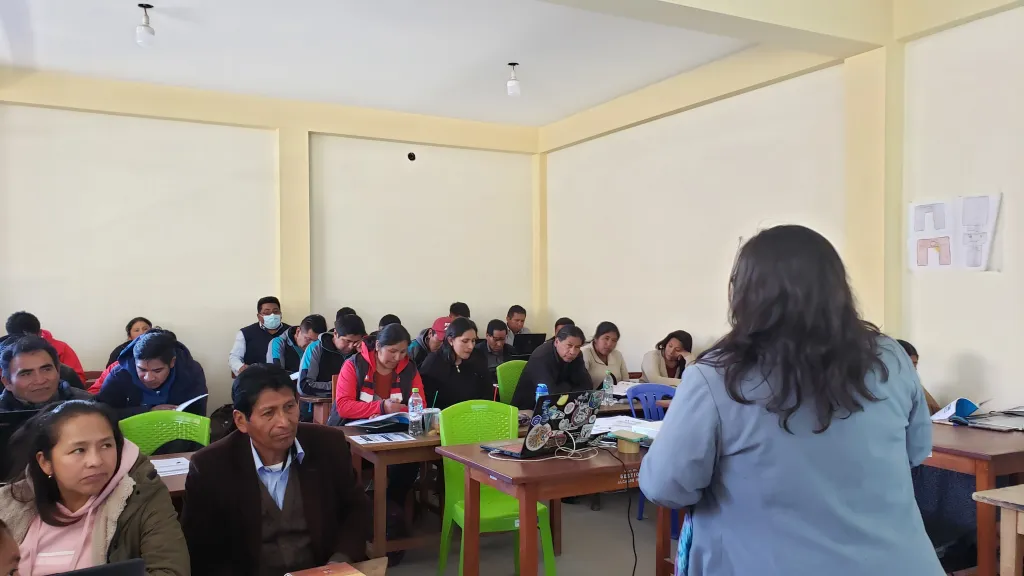
COLLABORATING WITH YOUTUBERS
Wikipedia as an educational tool
Bolivia
In Bolivia, the user group Wikimedistas de Bolivia implemented the Reading Wikipedia in the Classroom program in innovative ways, collaborating directly with a popular YouTuber, Rodny Montoya, to create videos explaining what Wikipedia is and how it works.
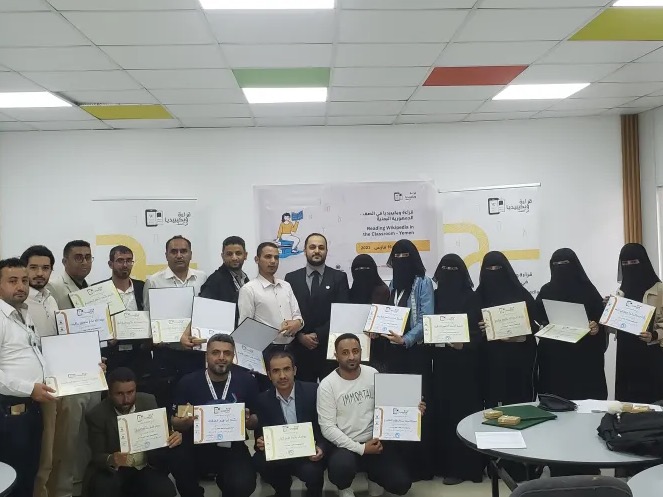
Training Teachers in Yemen
Wikipedia makes positive Impact on Yemeni teachers
Yemen
The Reading Wikipedia in the Classroom program has successfully trained 30 Yemeni teachers on how to use Wikipedia as a teaching resource to promote student engagement and critical thinking skills.
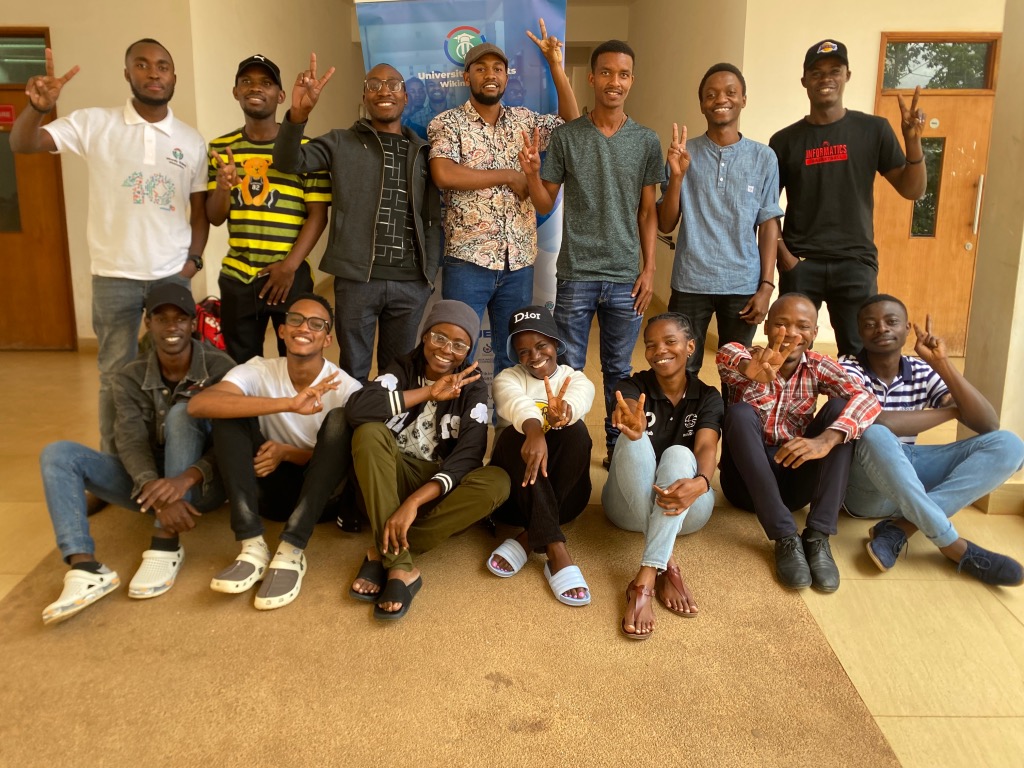
Navigating Peaks and Valleys
Embracing diversity in Tanzania’s Wikimedia community
Tanzania
Tanzania is a land of great diversity, with over 120 ethnic groups, each with its own unique culture, language, and knowledge. As part of the global Wikimedia movement, Tanzanian Wikimedians are working hard to ensure that their communities are as diverse and inclusive as possible.
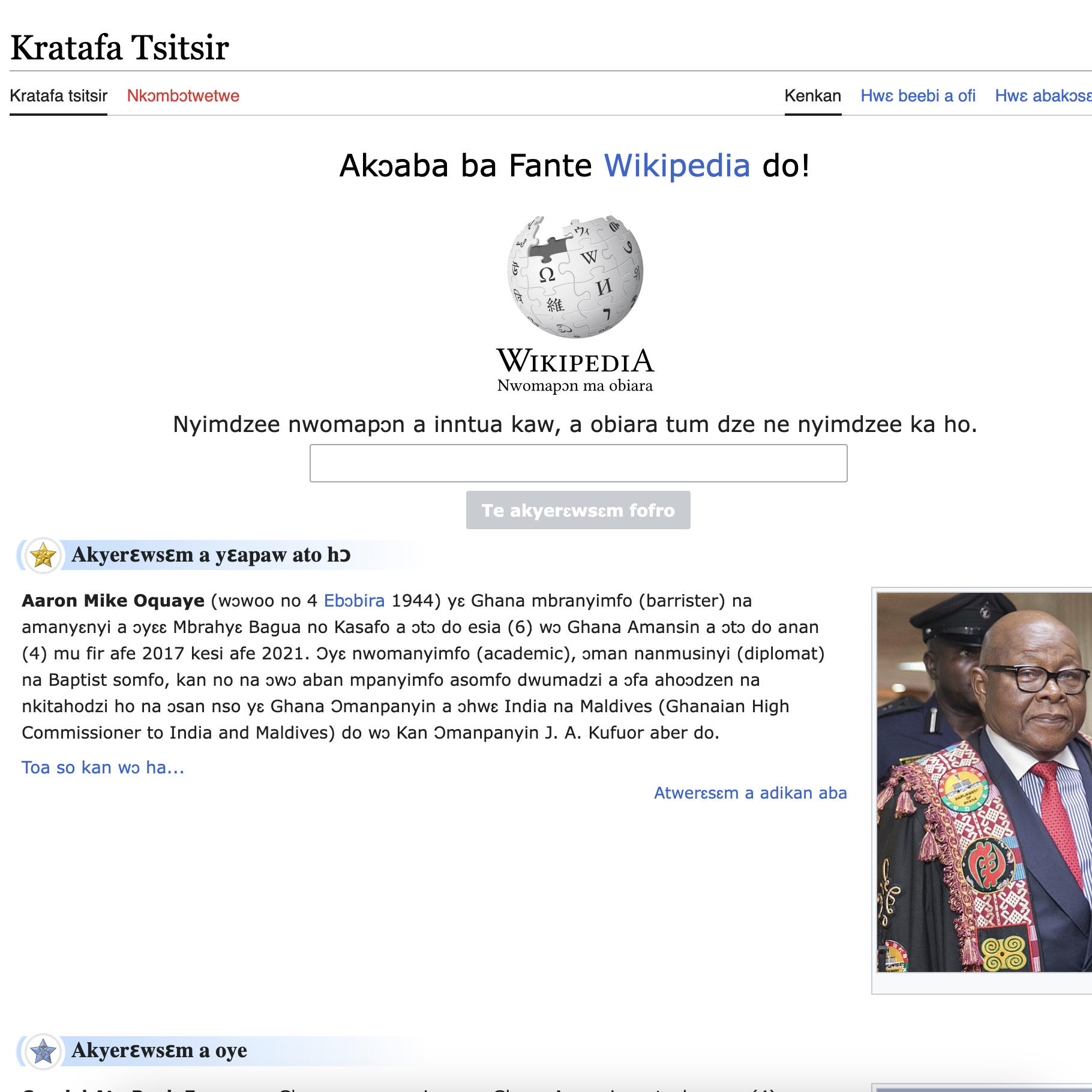
Increasing Access
Fante language joins Wikipedia
Ghana
Fante, one of the widely spoken languages in Ghana, has been approved on Wikipedia, joining four other Ghanaian languages with their own Wikipedia domain. Fante is primarily spoken in the central and southern regions of Ghana, as well as in settlements in other regions in the west of the country, with an estimated 2 million speakers.
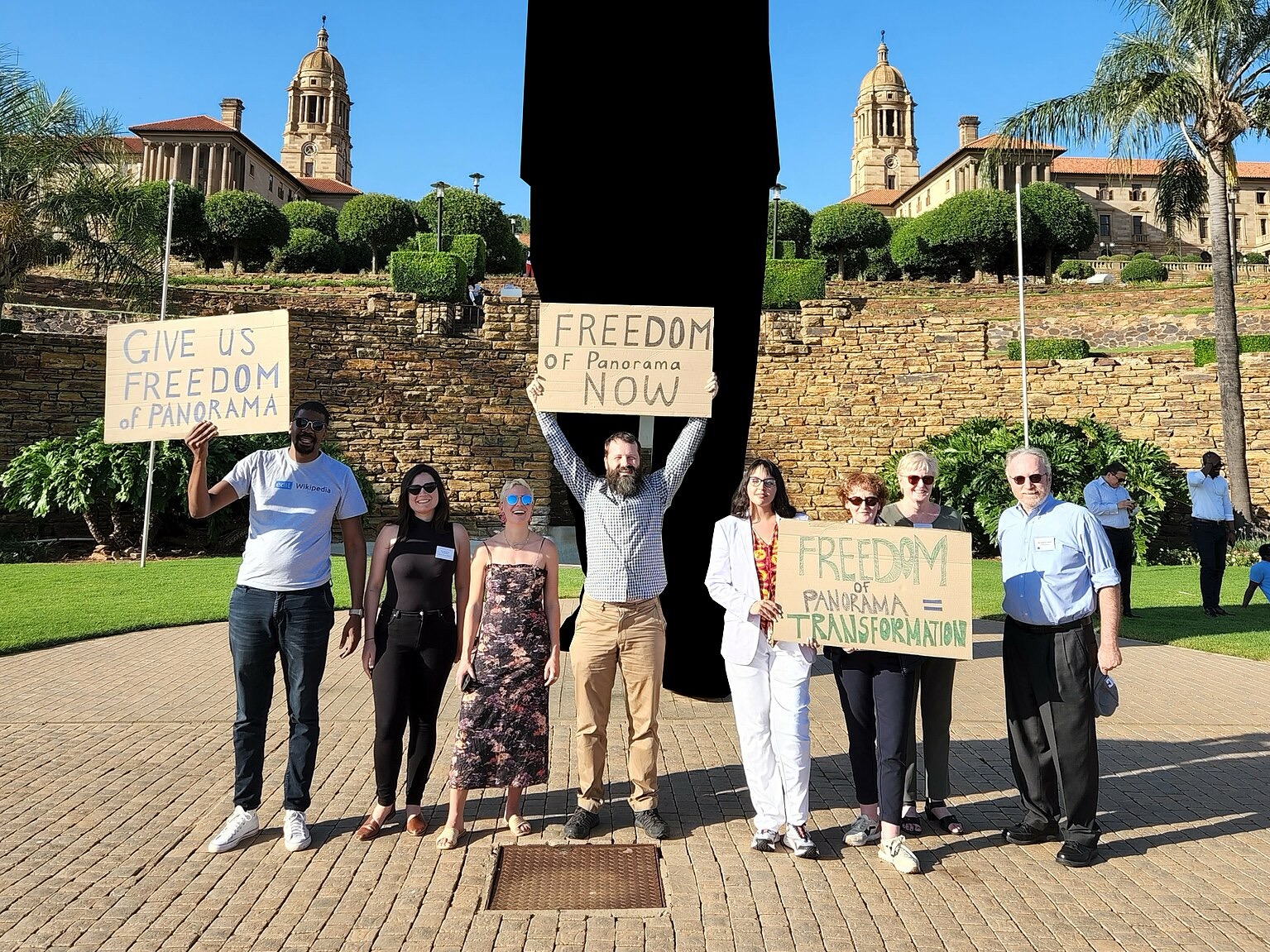
Copyright Reform
Promoting knowledge equity in South Africa
South Africa
Members of Wikimedia South Africa, Wikimedia Deutschland, and the Wikimedia Foundation were active participants in the “A Right to Research in Africa?” (R2R) conference, which offered important lessons for those who wish to advocate for copyright reform including the overarching message that copyright reform is necessary to break down the social, political, and legal structures that sustain information injustice across Africa.
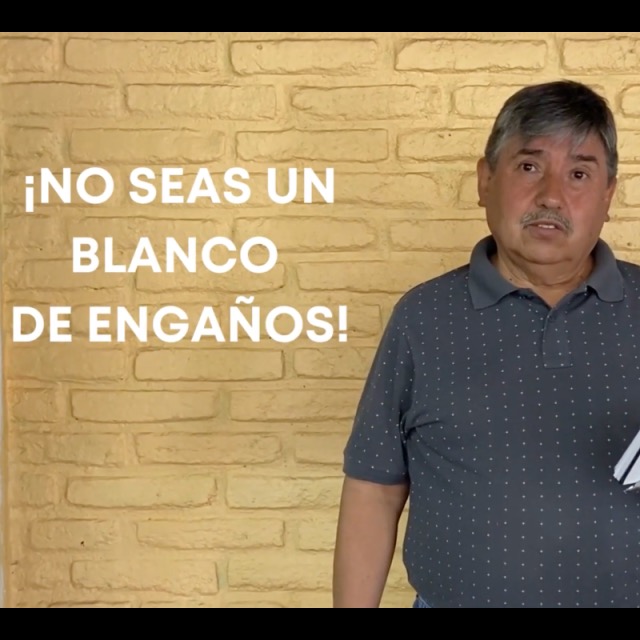
Fighting Disinformation
A repository of anti-disinformation projects
Chile
One of many projects highlighted, Wikimedia Chile collaborated with Google and the municipality (comuna) of Quilicura in Chile to develop a training called ¡Que no te pille la tecnología! Personas Mayores Informadas (Don’t let technology catch you! Senior Citizens Informed), which helped older people be safe on the internet, and discussed specific techniques against disinformation.
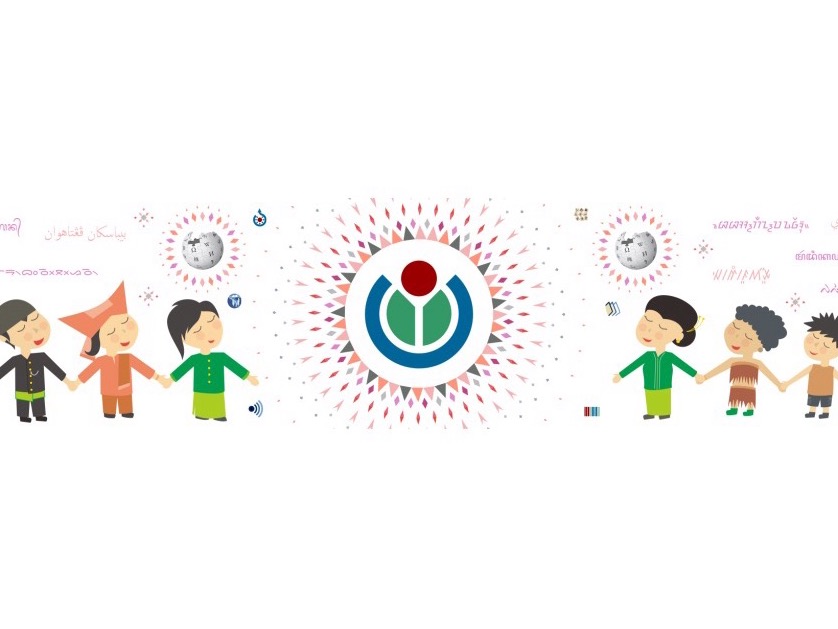
A strong base
Community retention in Indonesia
Indonesia
Wikimedia Indonesia (WMID) has been supporting several Wikimedia communities across the regions of Indonesia. They consist of individuals of diverse backgrounds, statuses, and economic levels who have been crucial in advancing Wikimedia projects, such as Wikipedia, Wikidata, and Wikisource, as well as helping WMID with outreach and workshops in various parts of Indonesia. Currently, there are 14 local Wikimedia communities supported: four language-based communities, eight location-based communities, and two project-based communities.
Financial ACCOUNTABILITY
Financials
JULY 1, 2022 – JUNE 30, 2023
REPRESENTED IN US DOLLARS
| Beginning assets (market value as of July 1, 2022) | 99,893,169 |
|---|---|
| Gifts received | 14,097,487 |
| Investment gains\losses | 10,757,300 |
| Total | 124,747,956 |
| Expenses | |
| Fundraising | 1,064,389 |
| General & Administrative | 925,281 |
| Programmatic: | 3,345,588 |
| – Funding for Wikimedia Projects | 3,229,466 |
| – Other | 116,122 |
| Total Expenses | 5,335,258 |
| Market value as of June 30, 2023 | 119,412,698 |
| Change in market value in FY 22-23 | 19,519,529 |
| Return on Invested Assets | 11.37% |

Leadership
Leadership during the 2022-2023 Financial Year
Board of Directors

Jimmy Wales
Founder, Wikipedia Project and Board Chair
Internet and technology entrepreneur Jimmy Wales is founder of the online non-profit encyclopedia Wikipedia and co-founder of the privately owned Wikia Inc., including its entertainment media brand, Fandom, powered by Wikia. Wales serves on the board of trustees of the Wikimedia Foundation, the non-profit charitable organization he established to operate Wikipedia.
In April 2017, Jimmy launched WikiTribune – a news website involving professional journalists working alongside volunteers to curate fact checked and reliable articles. In 2006 Jimmy was named in Time magazine’s ‘100 Most Influential People in the World’ for his role in creating Wikipedia.

Phoebe Ayers
Librarian, Massachusetts Institute of Technology
Phoebe Ayers is a long-time editor in English Wikipedia, Commons, Wikidata, Wikivoyage, and other Wikimedia projects. A former Wikimedia Foundation Board Trustee, she has become a seasoned participant in Wikimedia Foundation governance, as well as community events, including many Wikimania conferences, and outreach to educators and librarians. Ayers has been an academic reference librarian in the science and engineering library at Massachusetts Institute of Technology since 2015. Prior, she was a librarian in the Physical Sciences & Engineering Library at the University of California, Davis.

Peter Baldwin
Co-Founder, Arcadia Fund
Peter Baldwin is a professor of history at UCLA, Global Distinguished Professor at NYU, and co-founder of the Arcadia Foundation. Since 2002, Arcadia has given away close to one billion dollars to safeguard cultural heritage, preserve the environment, and support open access.
His scholarly work deals with the development of the modern state in Europe and the US over the past two centuries. He has written books on the welfare state, on public health and contagious disease, and on copyright. His latest books are on the Covid pandemic (Fighting the First Wave: Why the Coronavirus was Tackled So Differently across the Globe) and on the deep history of crime and its prevention (Command and Persuade: Crime, Law, and the State across History). His book on open access (Athena Unbound: Why and How Scholarly Knowledge Should Be Free for All) was published by MIT Press in March 2023 – and is available also, of course, in open access format.
He also serves on the boards of the American Council of Learned Societies, the Wikimedia Endowment, the Danish Institute for Advanced Studies, the Central European University, and is chair of the Board of the Center for Jewish History.
You can read more about Peter on the blog.

Annette Campbell-White
Founder, Kia Ora Foundation
Annette Campbell-White is an accomplished executive venture capitalist with a proven track record of leadership as a founding or lead investor into successful companies that have created groundbreaking biomedical technologies.
Widely recognized as a pioneer for women in venture capital investment, Annette was the first biotechnology analyst on Wall Street and the first female partner at Hambrecht & Quist, a leading international investment banking firm. From 1986 until her retirement in 2015, Annette was Founder and Senior Managing Partner of MedVenture Associates, a biomedical venture capital firm. There, Annette initiated MedVenture investments in emerging biomedical technologies, such as companies that produced the first off-fingerstick glucose blood-testing monitor, the first cervical disk implant, and the first digital hearing aid.
A strong supporter of the arts, Annette has served on the boards of several performing arts associations, including the San Francisco Opera and Cal Performances. In 1997, she established the Kia Ora Foundation, whose scholarships for post-graduate music students from New Zealand enable them to study abroad. Her memoir, Beyond Market Value; A Memoir of Book Collecting and the World of Venture Capital, was published in 2019.
You can read more about Annette on the blog.

Alexander M. Farman-Farmaian
Vice Chairman, Partner and Portfolio Manager, Edgewood Management
Alexander M. Farman-Farmaian is Vice Chairman, Partner and Portfolio Manager at Edgewood Management. He joined in January 2006, implementing the current valuation approach for the firm. He served as Director of Research, and produces the “Economents™”, an economic and financial markets update. Prior to Edgewood, Alex was for 19 years a senior member of the Portfolio Management team at W.P. Stewart & Co., and chaired the Investment Oversight Committee.
He is a member of the Council on Foreign Relations (CFR – NY), the World Presidents’ Organization (WPO), Chief Executives Organization (CEO), and formerly of Tiger21. He served as a Trustee of the International Women’s Health Coalition (IWHC), that promoted access to health services and fundamental human rights of women and girls around the world. This merged to create Fos Feminista in 2021, a large international organization for reproductive health, rights and justice. Alex is on the Board of CollegeSpring, which assists low-income high-school students in SAT & ACT college entry testing.
Alex was formerly President of the Princeton Club of New York, is a member of the Economics Club of New York, and is on the board of KalinatS.A., a potato chip manufacturing company in Caracas, Venezuela. He received a BA in Economics from Princeton University in 1987, where he wrote his senior thesis on “The Effects of Capital Markets on Developing Economy Growth Rates”. He speaks fluent French, Spanish, and conversational Farsi and Italian.

Michael Kim
Founder, Cendana Capital
Michael Kim is the founder and Managing Partner of Cendana Capital, an investment firm focused on early stage venture capital, and former trustee of the Asian Art Museum and San Francisco Employee Retirement System.
In addition to his expertise in investment strategy and venture capital, Michael is actively involved in arts and public service in San Francisco, where he and his family reside. In 2004, he was appointed by then-San Francisco Mayor Gavin Newsom to a five-year-term as a Trustee of the San Francisco Employee Retirement System, a $20 billion pension fund, and served as the President of the board and the Chairman of the Investment Committee.
For more on Michael, visit our blog.

Lisa Lewin
CEO in Residence, Primary Venture Partners
Lisa Lewin is a strategist and operating executive with over 25 years of experience leading and advising private and social sector organizations. As CEO in Residence at Primary, she partners with Founders to accelerate their evolution into world-class CEOs.
She was most recently CEO of General Assembly, which has built accessible tech career pathways for over one million people and diverse talent pipelines for hundreds of leading employers globally. Prior, she spent a decade driving digital transformation at scale in the publishing sector in senior executive roles with Pearson and McGraw-Hill. Lisa has co-founded various companies and projects, including impact consulting firm Ethical Ventures, e-learning content creator Mindgate Media, and civic membership organization The Leadership Now Project.
Lisa serves on the boards of Custom Ink and the Wikimedia Endowment. She is the co-author of the Business for Racial Equity Pledge, and has been named a PoliticsNY Power Player. Lisa received a B.S. from Washington University in St. Louis and an M.B.A. with honors from Harvard Business School. She lives in New York City with her husband and daughter.

Patricio Lorente
General Secretary of Administration, National University of La Plata
Patricio Lorente of City Bell, Argentina has also been appointed to the Wikimedia Endowment Board. Lorente is a scholar devoted to outreach activities in education. He is currently the General Secretary of Administration of the National University of La Plata. Lorente joined Spanish Wikipedia as an editor in early 2005 and has been an administrator since 2006. He is a founding member of Wikimedia Argentina and served as president from 2007 – 2012. He was selected as a Wikimedia Foundation Board Trustee in the years 2012, 2014, and 2016. He served as chair of the Wikimedia Foundation Board from July 2015 through June 2016.

Doron Weber
Vice President of Programs, Alfred P. Sloan Foundation
Doron Weber currently serves as Vice President of Programs at the Alfred P. Sloan Foundation. Weber is a graduate of Brown University (B.A). and studied at the Sorbonne and Oxford University (M.A., 1981), where he was a Rhodes Scholar. At the Sloan Foundation, he runs the Public Understanding of Science and Technology Program, with national programs in science and the arts, and the Universal Access to Knowledge Program, which has supported the Wikimedia Foundation since 2008. A published author, Doron has been a Wikimedia Foundation Board Visitor since 2011, mentored by Jan-Bart de Vreede.
Staff Leadership

Lisa Seitz Gruwell
President, Wikimedia Endowment
Lisa Seitz-Gruwell is the Chief Advancement Officer and Deputy to the CEO of the Wikimedia Foundation. Lisa’s role includes leading the Wikimedia Foundation’s fundraising activities across a broad and varied spectrum that includes both individual donors and philanthropic institutions, as well as a focus on community growth and partnerships. In 2016, she helped launch the Wikimedia Endowment and serves as its President.
Before joining the Wikimedia Foundation in 2011, Lisa worked as Chief Operating Officer at the Rappaport Family Foundation and Skyline Public Works, a fund that blends venture capital with philanthropy; as the District Director and Press Secretary for the California Assembly Majority Leader and in several roles for then-mayor of San Francisco Gavin Newsom. She also has previously worked as a political consultant and campaign manager for Democratic candidates in California, Montana, Michigan, Connecticut and Oregon. Lisa was also appointed to serve as a Civil Service Commissioner for the City and County of San Francisco. In addition, Lisa has served as a board member of several organizations including the Montana Environmental Information Center and the Progressive States Network, and the San Francisco Rock Project.
Lisa earned a bachelor’s degree in Public Relations and Political Science from Carroll College. She studied as a Coro Fellow before attending the Stanford University Graduate School of Business Center for Social Innovation in the Executive Program for Philanthropy Leaders.
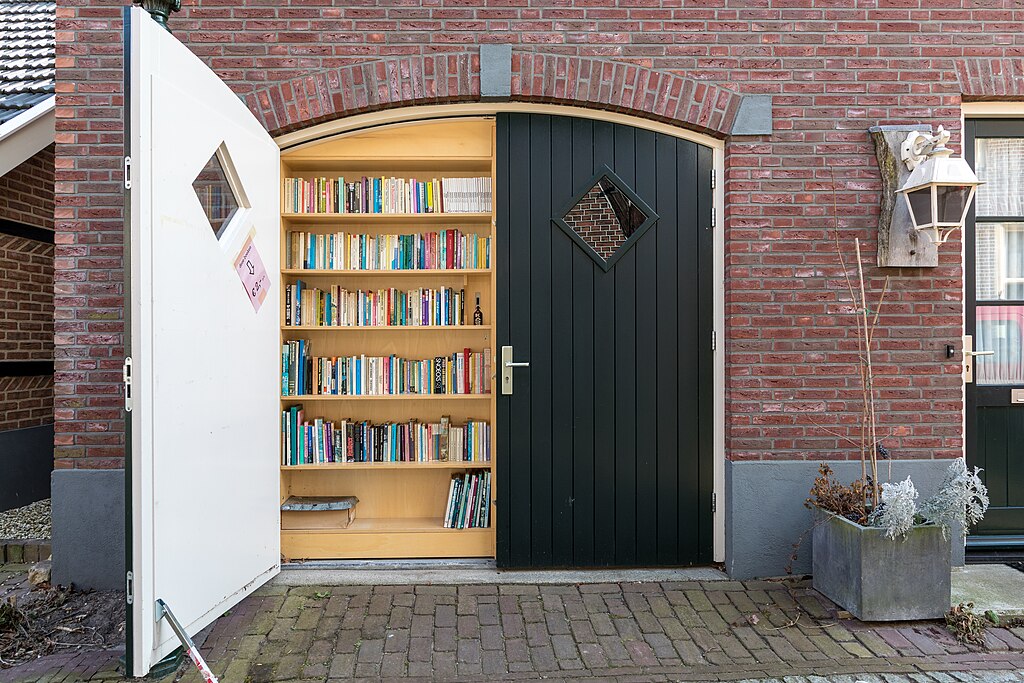
Donors
Merciधन्यवादGraciasありがとうشكراًDankeAsanteշնորհակալությունThank you!

We thank and appreciate the generous benefactors of the Wikimedia Endowment. Your steadfast support ensures the long-term sustainability and growth of Wikimedia projects, empowering millions worldwide with access to free encyclopedic knowledge for generations.
- Arcadia
- Amazon
- Paula Begoun
- Michael Brown
- Karel Bujok
- Annette Campbell-White
- Alex and Patricia Farman-Farmaian
- Carol Fryer and Bernard Moret
- Laurie and Thomas Fusco
- Peter Gadwa
- Howard Gilman Foundation
- Holly Gray
- Marie Griffin and Robert Coffey
- Steven Hamburger
- In honor of Hank and Demaris Hudspeth
- Christine & Jordan Kaplan
- Karen A. and Kevin W. Kennedy Foundation
- Khandros-Bloch Family
- Victor Linck
- Meraj Manal
- Moneta Asset Management
- In memory of Richard and Virginia Neufeld
- The O’Brien Family, New Jersey
- Tim and Mary Riordan
- Unger Foundation
- Mike Weiss
- Ross Annable
- Sarah Anderson
- Michael Ashby and Nancy Till
- Patricia A Aufderheide
- Ken and Valerie Baker
- Romelle Castle
- Anjan Chatterjee
- Nicholas Chu
- Ms. Virginia Clark
- Michael Danahy, Ph.D.
- Helen Darling
- Chris Dobson
- John Dove
- Greg Durrett
- Yoseph Feit
- Anita and John Fiorillo
- Susan Leigh Foster
- Walter Nicholas Freygang
- Thomas and Elizabeth Gewecke
- Edwin A. Goodman
- Jack Goodman
- Loretta Montanari Gottshall
- Ronald & Peian Harness
- Mari Nordby Harpur
- Jack Hetherington
- In memory of Professor Dr. Walter Higbee
- Ernest Hildner
- In honor of Zach Intrater and Marc Agnifilo
- Kent Janér
- Peter and Linda Jeschofnig
- Eric Jones and Daniel Monasterio
- John Kiely
- Irene Kuhn
- Peter Ian Kuniholm
- Sally Lawrence and David Lai
- Jerry LeClaire
- Lisa Lewin
- Elizabeth Liebman
- Ian Longshore
- Robert Lonergan
- In memory of my sister MADELEINE
- Alexander Main
- Clara McCreery
- Mr. Thomas McDavitt
- Peter and Heather McHugh
- Patricia & Charles Mintz
- Perry Mitchell
- Judith S Morton
- Netflix
- One Point Of Light Foundation Inc
- Jeremiah Ostriker
- Robert Quillin
- Mary Patterson
- Barbara Perreault
- Matthew Petrosky
- Jonathan Pool
- Stephen Powelson
- Lorraine and Gary Roberts
- Terry Rossow
- Nathan and Nancy Sambul
- David Sassen
- Charles Schade
- Rogil Schroeter
- Stephen Shank
- Bill Spindler
- Frederick Stanton
- Frank and Cheryl Stearn
- Elizabeth Story
- Jon Thaler
- Kelly Townsend
- Jack Triplett
- Lonna Wais
- Doron Weber
- Beverly and Darrell Weaver
- K.L. Won
- Mr. Eugene Yarovoi
- Christopher Yetman
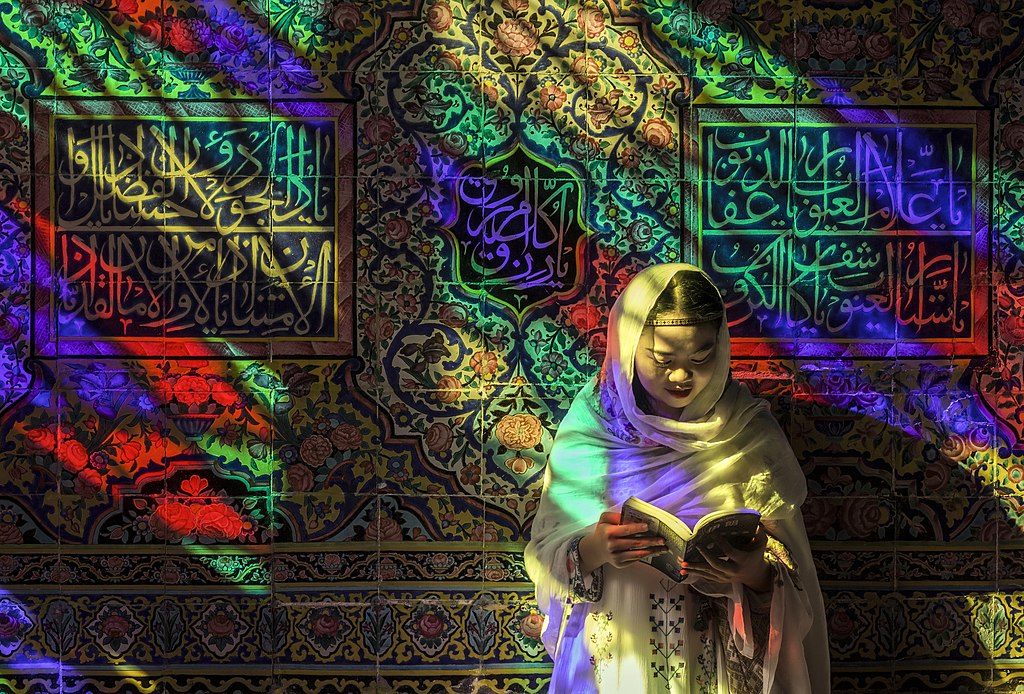
WIKIMEDIA FOUNDATION
The Wikimedia Foundation
Discover the heart of the Wikimedia Foundation’s impact in its 2022/2023 Annual Report. Explore the stories, initiatives, and achievements here.
Help Ensure Wikipedia’s Future
Giving today
The Wikimedia Endowment ensures that Wikipedia and the related projects will continue to provide the world with high quality encyclopedic knowledge now and into the future. Making a gift today is the simplest way to ensure that Wikipedia remains strong, stable, and always there when you need it. There are many ways to make a gift, including online, through a DAF, a gift of stock, a Qualified Charitable Distribution, a Charitable Gift Annuity, and more. To learn more, visit wikimediaendowment.org.
Giving tomorrow
Your love of Wikipedia can live on by including Wikimedia in your estate plans. By naming the Wikimedia Endowment in your will or as a beneficiary of your retirement plan or insurance policy, you can leave a legacy that will benefit the next generation of Wikipedia readers. To learn more, email legacy@wikimedia.org.

Contact Us
For more information about the Wikimedia Endowment, please contact us at endowment@wikimedia.org. For information on how you can support the Endowment with a planned gift, please contact legacy@wikimedia.org, or call
+1 415-541-3506 ext. 6863
